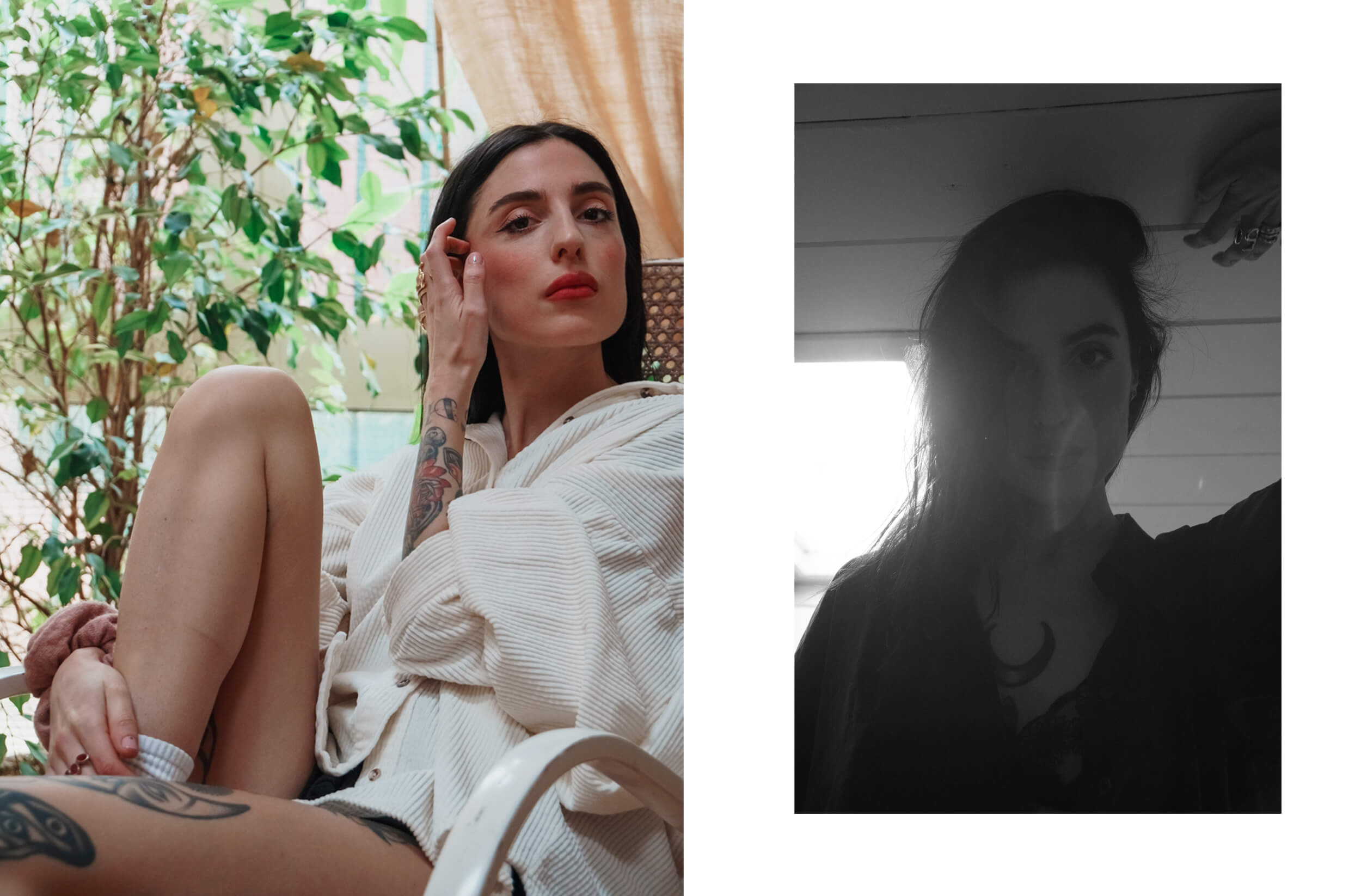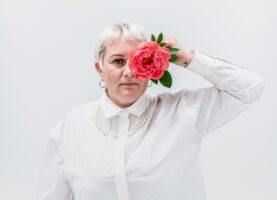At the beginning of the year, there is always a moment when you think about what you would like to do more in the new year. I’m not really talking about good intentions, but more about actual small goals that we hope to achieve. In my case, I like to think about what new projects I could carry out in my work, how far The Italian Rêve can push itself, and where I want to take it.
You know, for us, The Italian Rêve is a connection; it always has been. And for me, when I get face to face with a person to ask them questions, what I’m doing is no longer an interview but a sharing. And those times when this sharing of experiences, sensations, and emotions happens, we also often talk about topics related to mental health. We discuss its importance, how a person gets to choose a certain path instead of another, how or why specific issues are not really addressed.
So, I wondered why I still hadn’t created a space that could just be dedicated to this: mental health, people who have followed a healing path and who have something to say. People who can inspire, who can explain how taboos should be destroyed, one by one. From gender taboos to those judging us by the way our bodies look or stigmatizing the decision to go to a therapist. Those taboos that see failure as a purely negative thing.
Before starting this path, I took a look around me: I didn’t want to create anything too predictable, I wanted to try and say important things through people who are in the process of making a small but great revolution, and my first choice was Carlotta Vagnoli, who is a hurricane of energies, of ideas, of words. Carlotta is an activist, feminist, sex columnist, and, we think, a revolutionary. Everything she does and has done is a small act of revolution: from her body to her biggest fuck you, up to all the issues she talks about every day with the desire to change things.
And she will change them.
If you think about your childhood and adolescence, does anything happy come to your mind?
Yes, I think my childhood is the time I remember with the most affection, in general, in all my life. I have this crystalized idea, stuck in a moment, totally free from whatever physical reference, an idea of a peaceful state, and freedom, as well because, as a kid, I’ve always been free to do what I wanted and express myself the way I wanted. Ironically, I was very shy, very introverted, I was a loner, but I was very happy.
Adolescence was a passage I didn’t particularly enjoy, precisely because I didn’t feel like I belonged to any of the groups that surrounded me, I only felt a load of competitiveness around me. I went to an almost all-girls school, there were only 12 men in the whole school, and I felt this sort of constant external input of competition, as if someone always wanted us to fight against each other in some kind of eternal war between me, my schoolmates, and my friends, and I didn’t like that. I didn’t like having to find an aesthetic confrontation, to belong to a certain aesthetic, I didn’t like talking about “nothing;” I really liked playing the piano, I’ve played piano for many years, and then, obviously, politics soon came about while in high school.
I’ve always been the School President, I’ve always organized demonstrations, those were the things that made me feel really good, every time I did something useful and concrete, I felt good. Then I came here, to Milan, to start university, and everything changed, freedom was something extraordinary. In my first year here, in Milan, a world that I didn’t know opened up its doors to me.
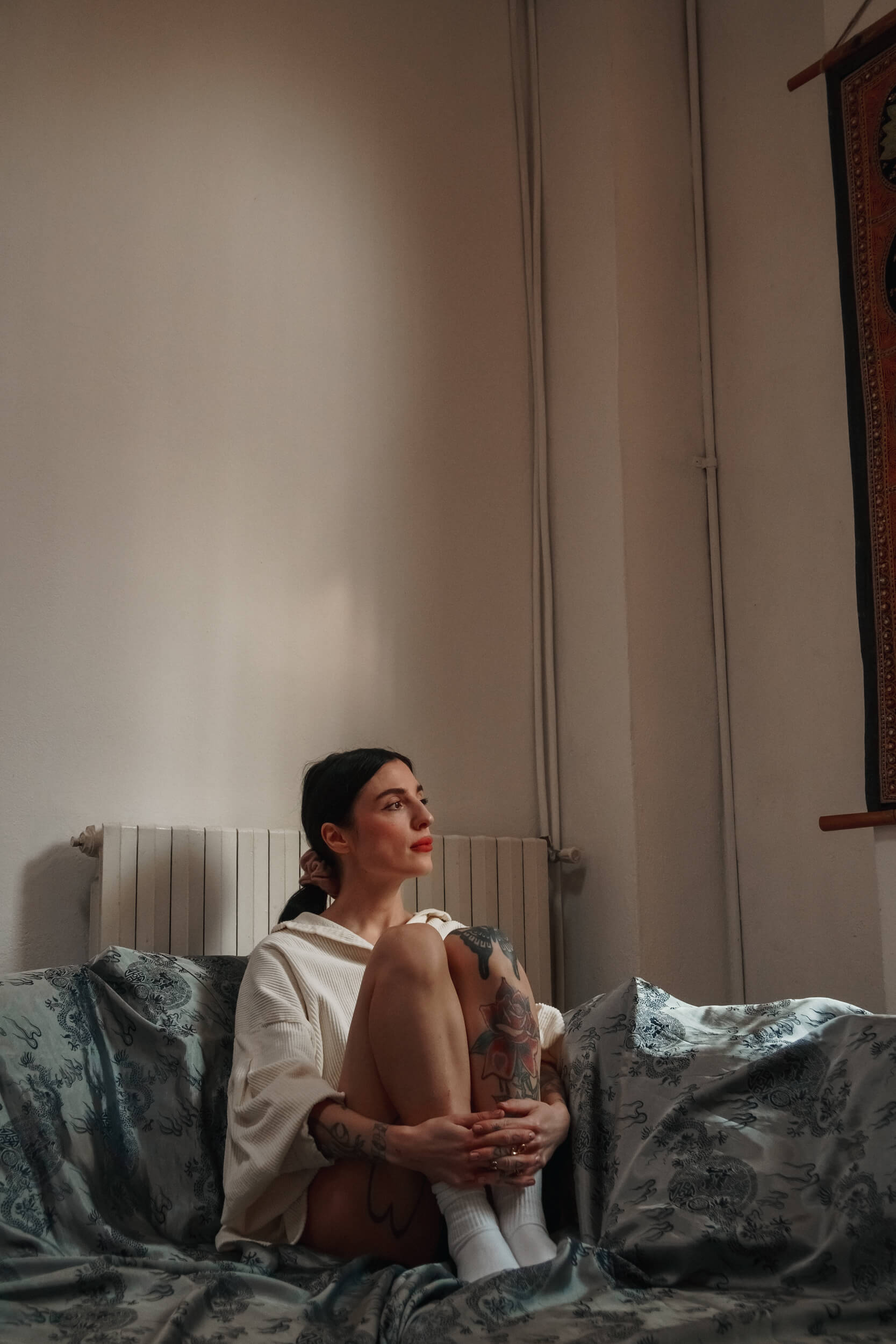
“Freedom was something extraordinary.”
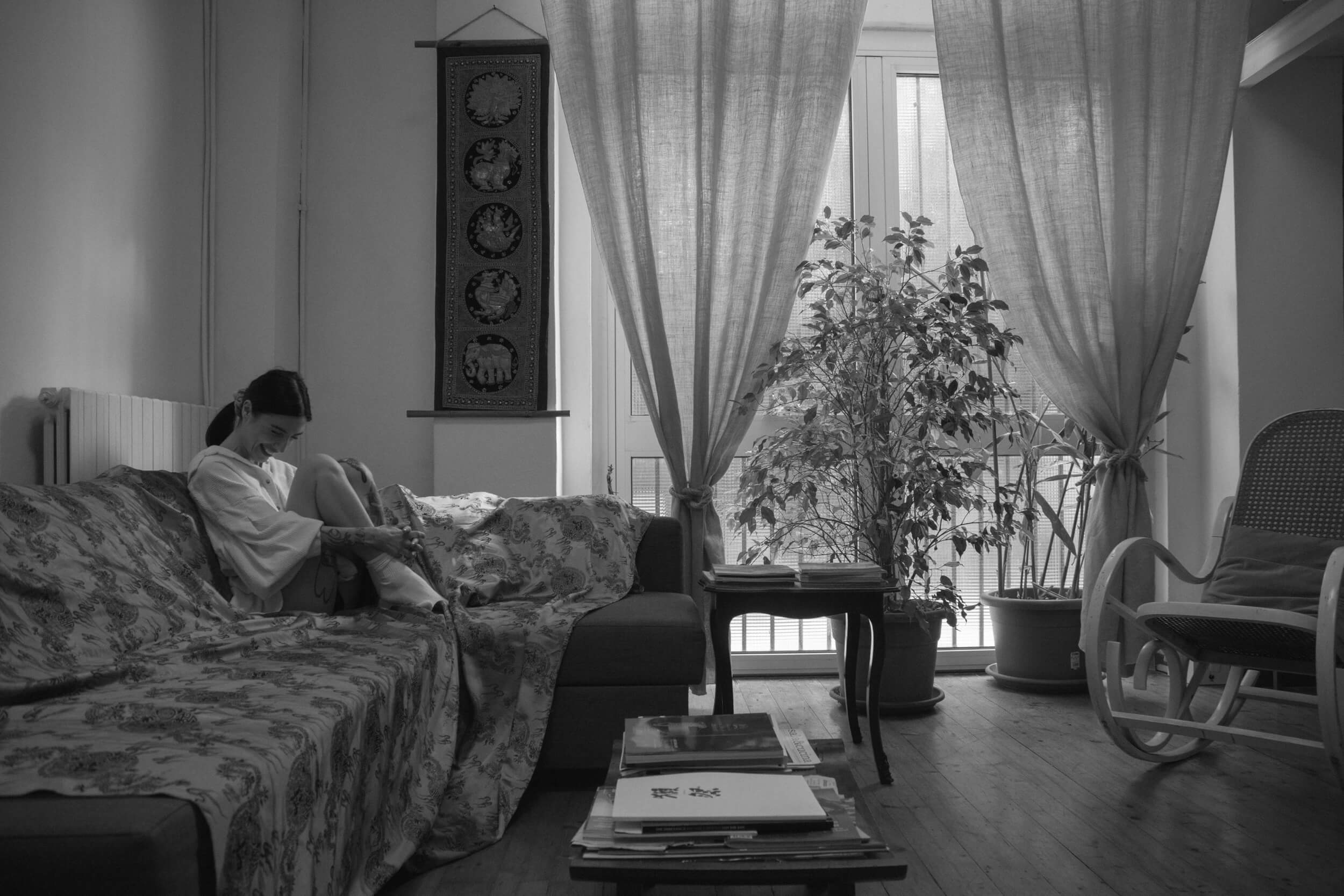
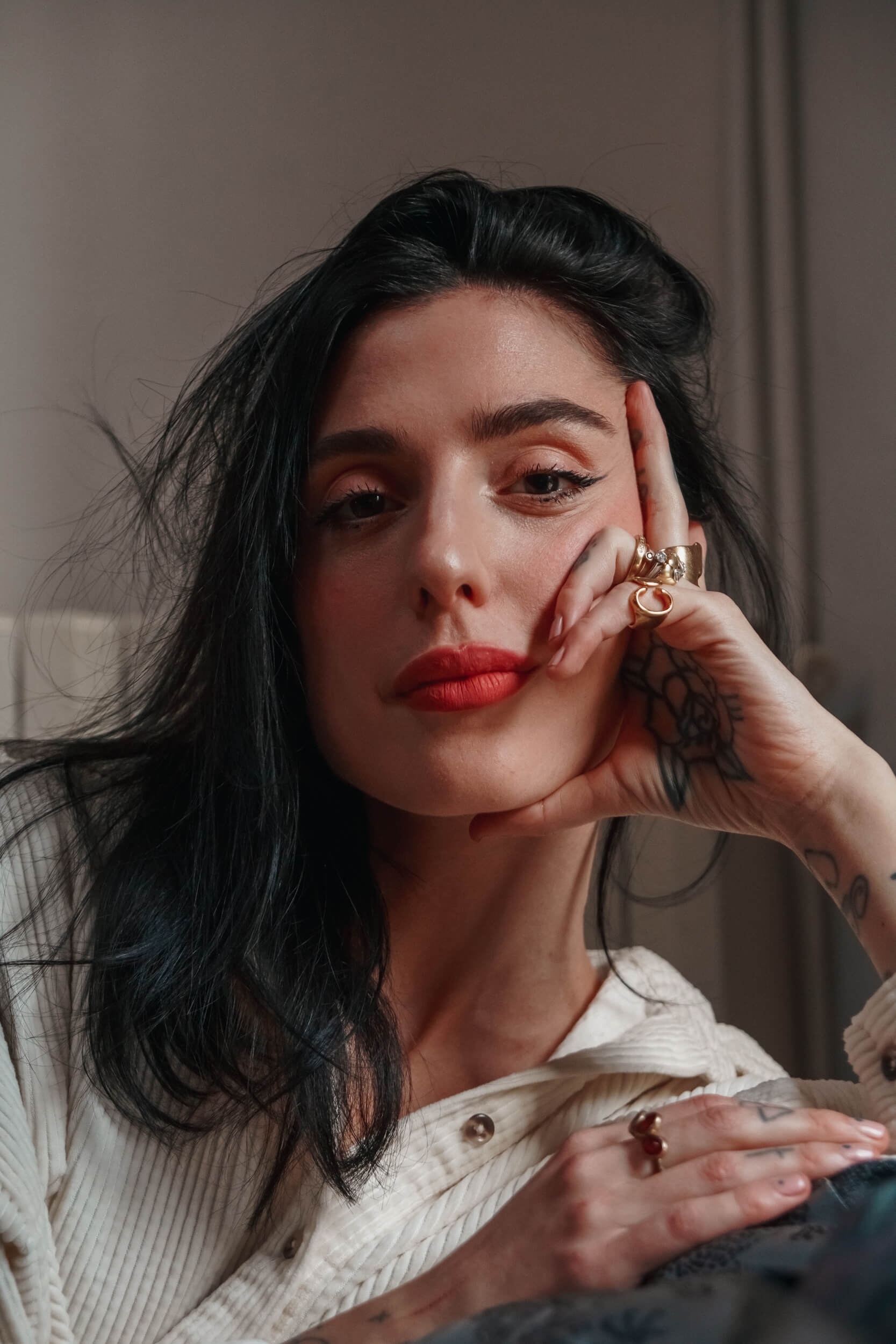
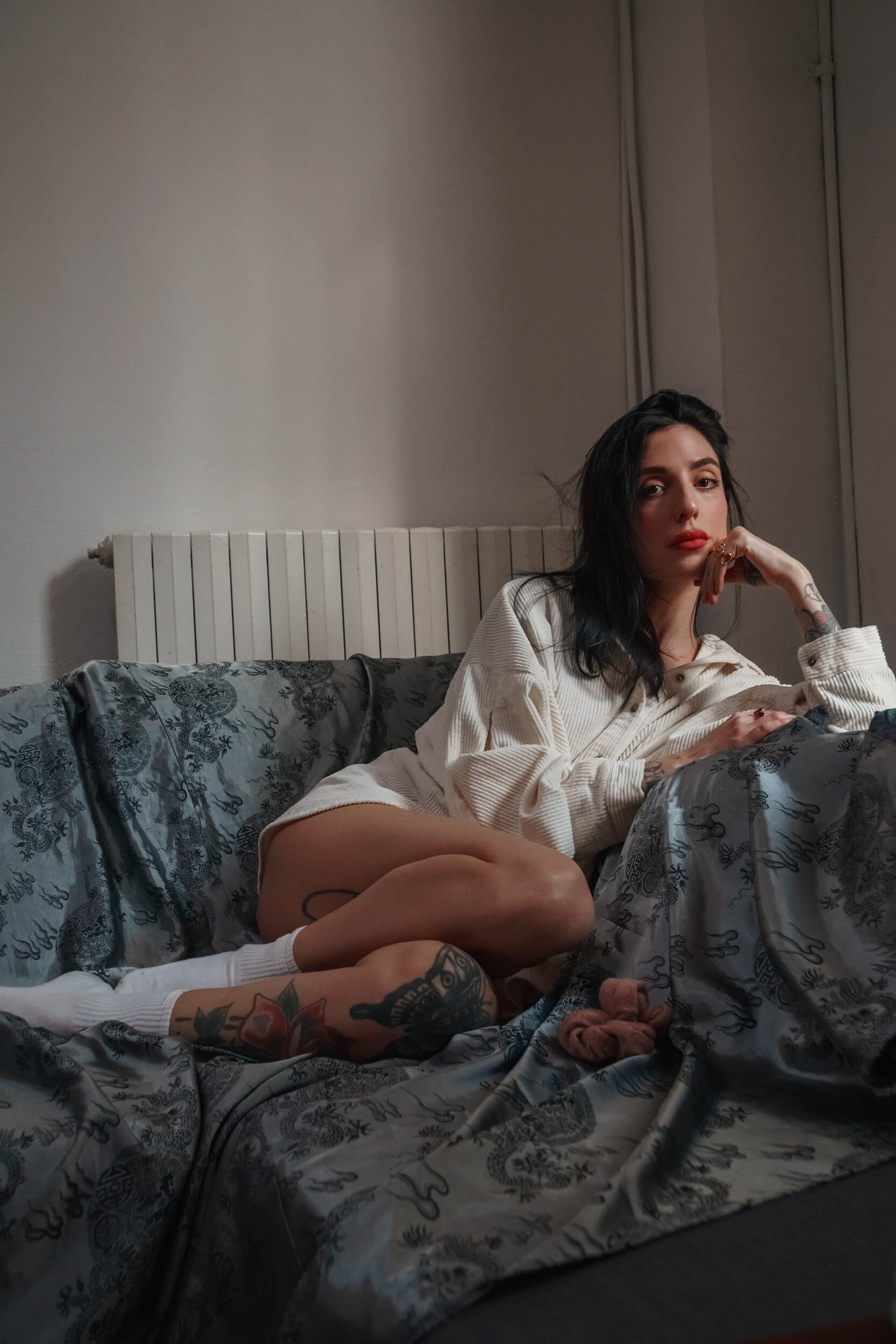
Are there any rituals or things you do when you wake up in the morning, or when you go to sleep? For example, some people, before going to bed at night, make a list of things they are grateful for, or stuff like that… What’s your thing, instead?
I’d rather say I’m not a creature of habit, I like living off the grid, also and above all to try and constantly put myself out of my comfort zone. To give you an example: I hung some lame paintings in a non-centered position up on the walls, I did the same thing with furniture, precisely to create some visual discomfort, to try and get used to not being meticulous, symmetrical all the time, also because, in the long run, it kills me creatively.
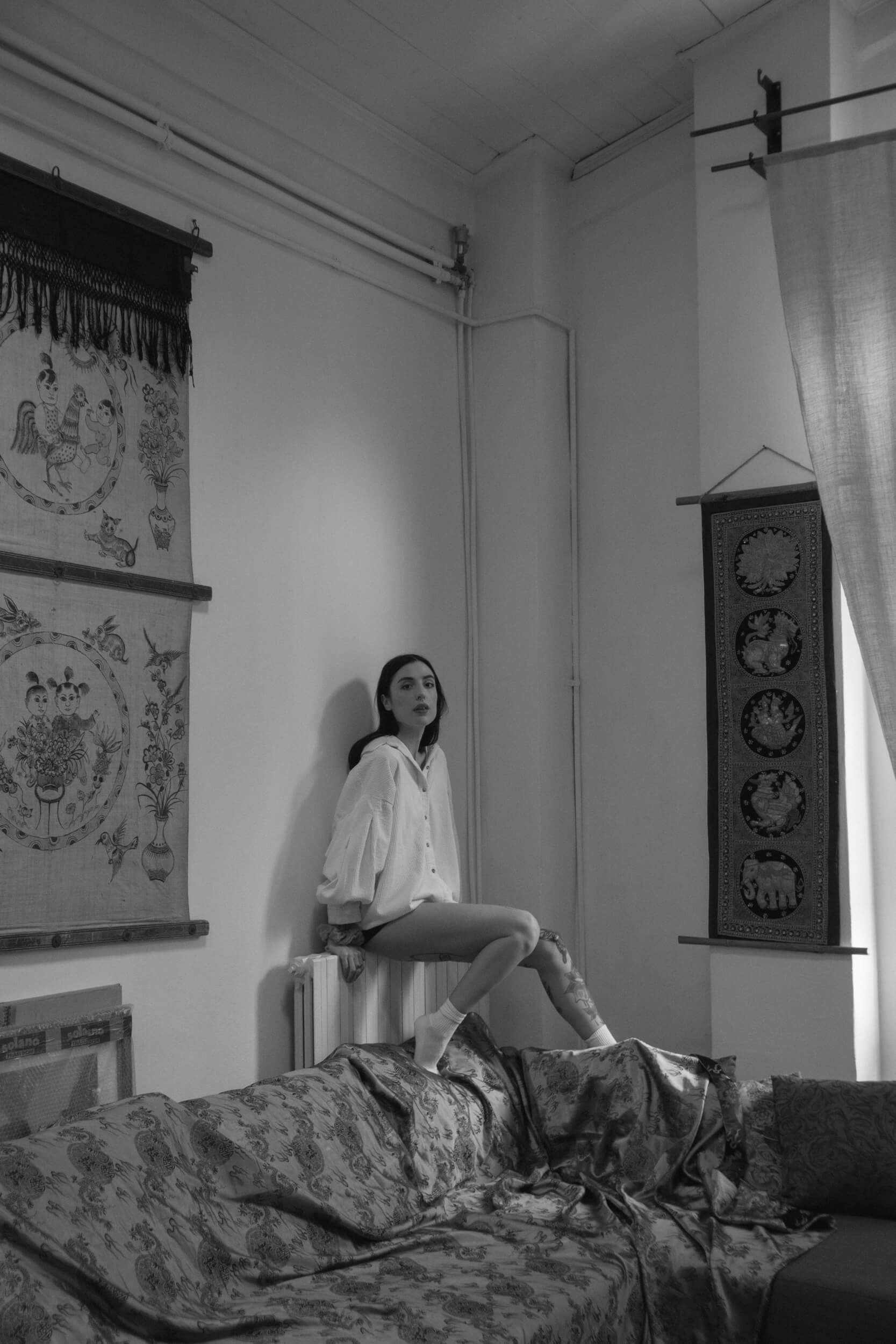
The only ritual I have is basically to try and not to talk with anyone until 9 in the morning because before that time it’s illegal [laughs]. Then I do the things that everyone does, or I guess everyone has their own routine: I don’t really do anything special at night, in the morning I wake up and read my emails on the phone, I try and answer to as many as possible until I can stay in bed. Besides that, I don’t have anything fixed, and even just the idea of having something fixed has always looked very worrying to me, that’s why I’ve always escaped from desk jobs, routine jobs, or even just mathematical stuff, all those kinds of things… that’s not for me.
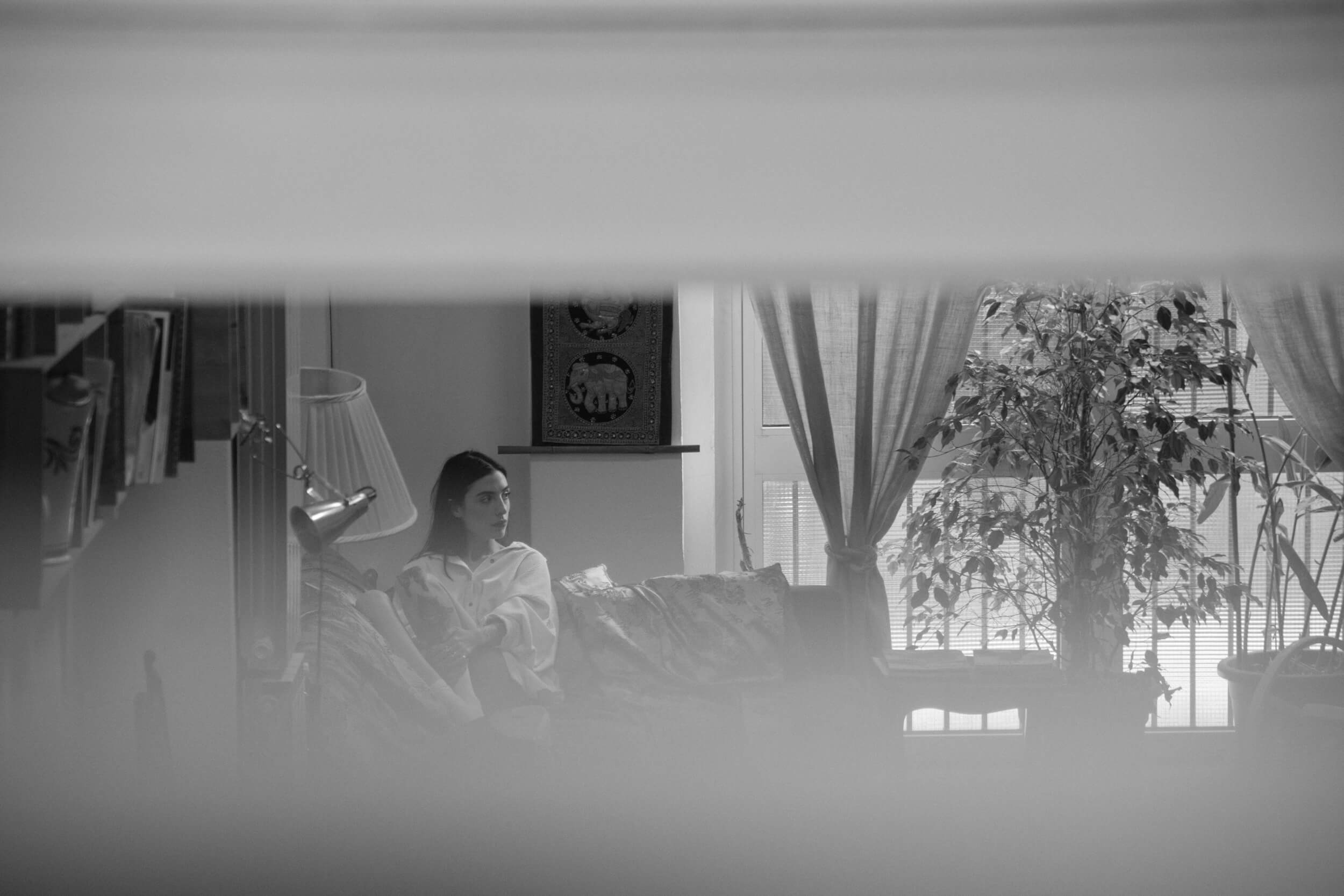
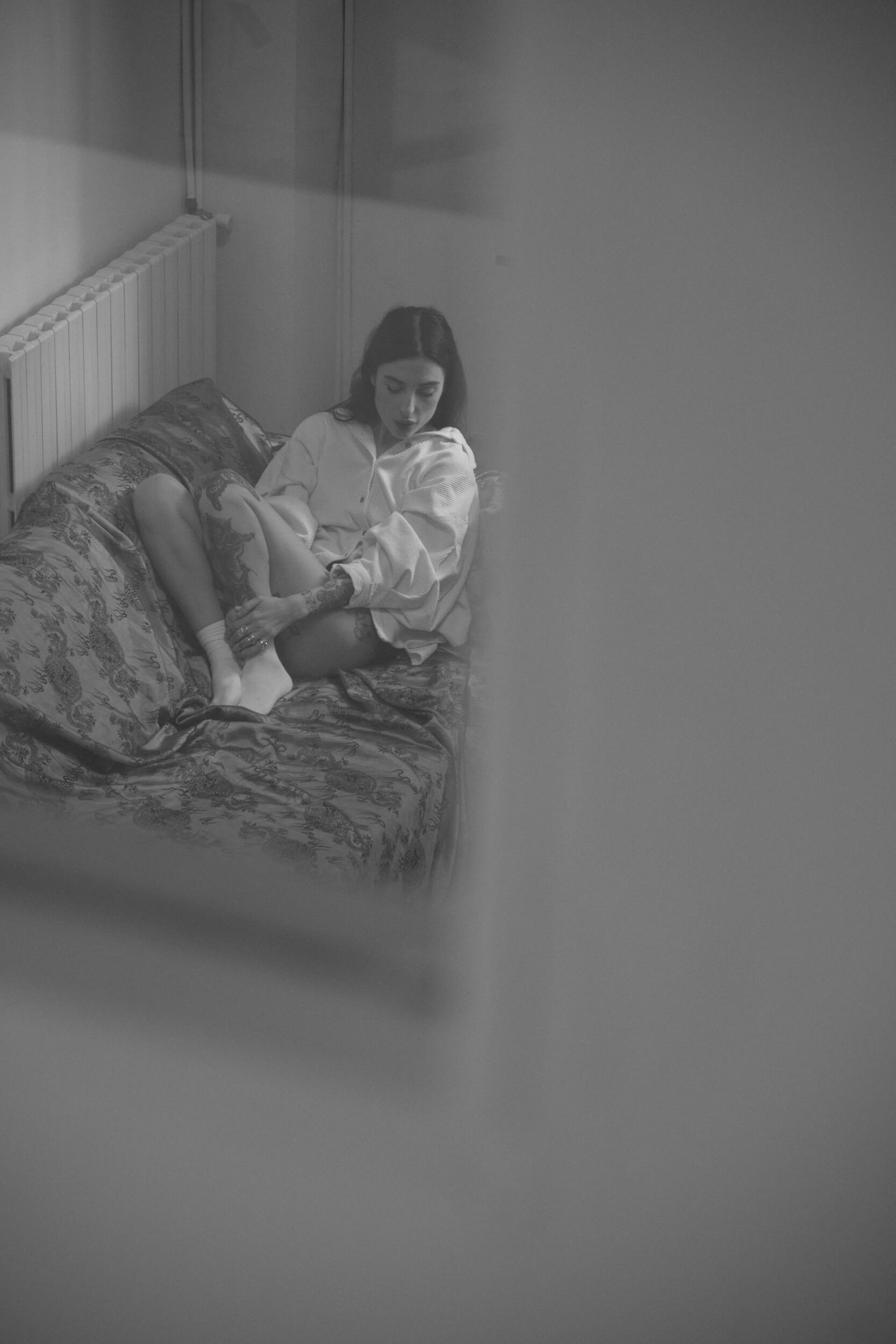
I think I would have died in an office. For a very short time, I’ve worked in an office… The routine of going to the office, the schedule, the fact that you have to do always the same things, the lack of creativity… High school suffocated me, can you believe it? I suffered a lot, but it wasn’t some “I don’t want to study” kind of rebellion, absolutely not…
Yeah, I get it, the idea of always being in the same place. This pandemic year has been weird for me because I usually work in a lot of different places, whether it is Paris, London, where I have some clients, Milan, I do lots of things in Milan, Rome, I go there very often: I haven’t moved from home for a whole year, and it’s been a huge challenge for me because I always worked in the same place, with my own self, always looking at the same thing, that is my kitchen. I spent quarantine alone, I’ve been home alone all year long… and you are the first people to which I speak that are real and not fake! [laughs] But it went well, my reaction was better than I expected. This thing of not having any reference point ever has maybe made me much more adaptive than I thought I could be, I thought I would have gone crazy, four or five years ago I would have gone crazy.
I’ve worked hard over the past few years, also with lots of therapy, which I think is the best thing that’s ever happened to me in my life, and the most interesting one, as well, and my therapist is a woman who I think is one of the smartest people I’ve ever met, and that also allowed me to say, in hindsight: “no, perhaps I wouldn’t have faced a pandemic with such serenity four or five years ago.”
I’ve been adaptive. It’s frustrating, in the long run, I feel like I’m a tiger in a cage, but I haven’t pathologized anything, so that’s already something [laughs].
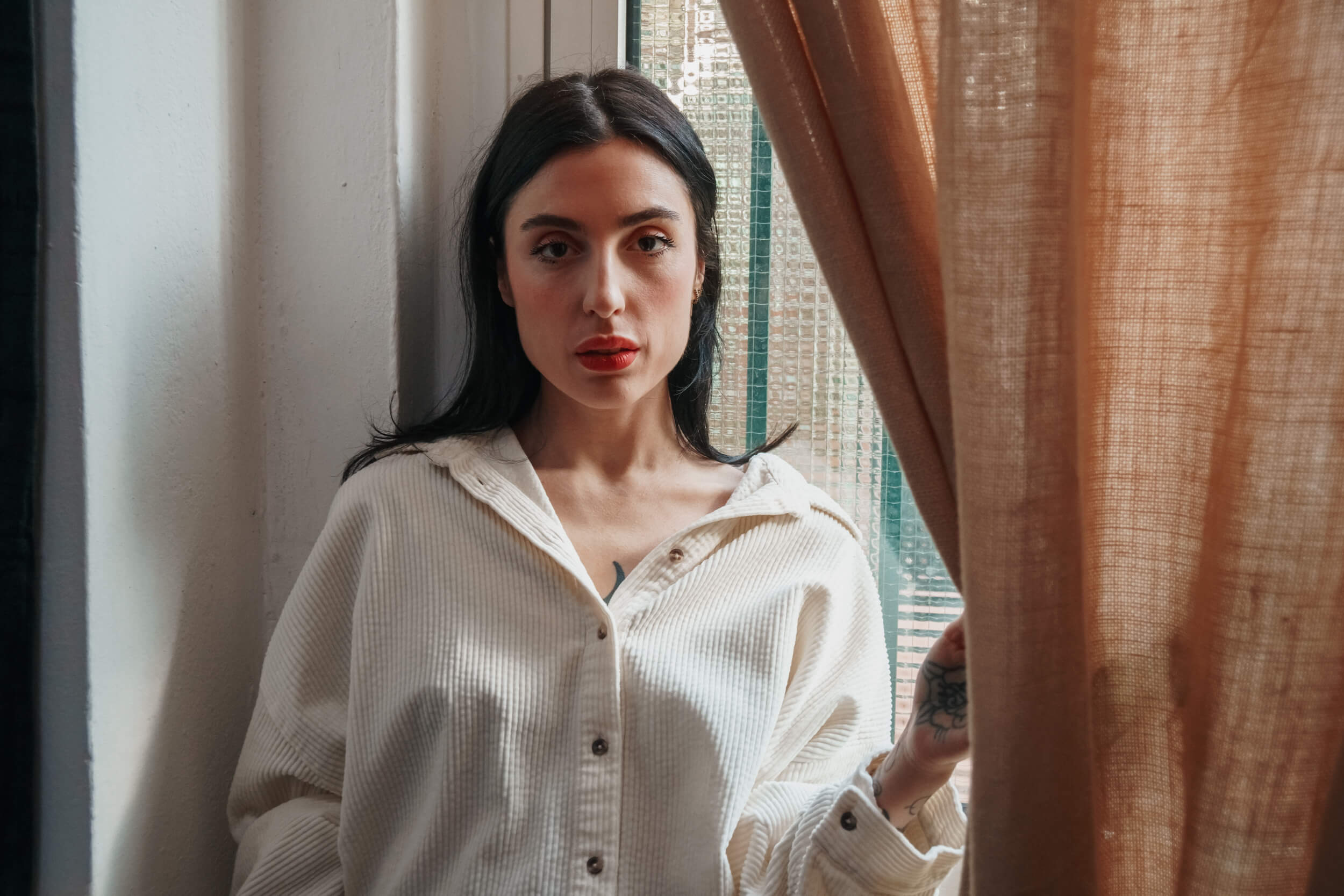
“Therapy… Which I think is the best thing that’s ever happened to me in my life, and the most interesting one, as well.”
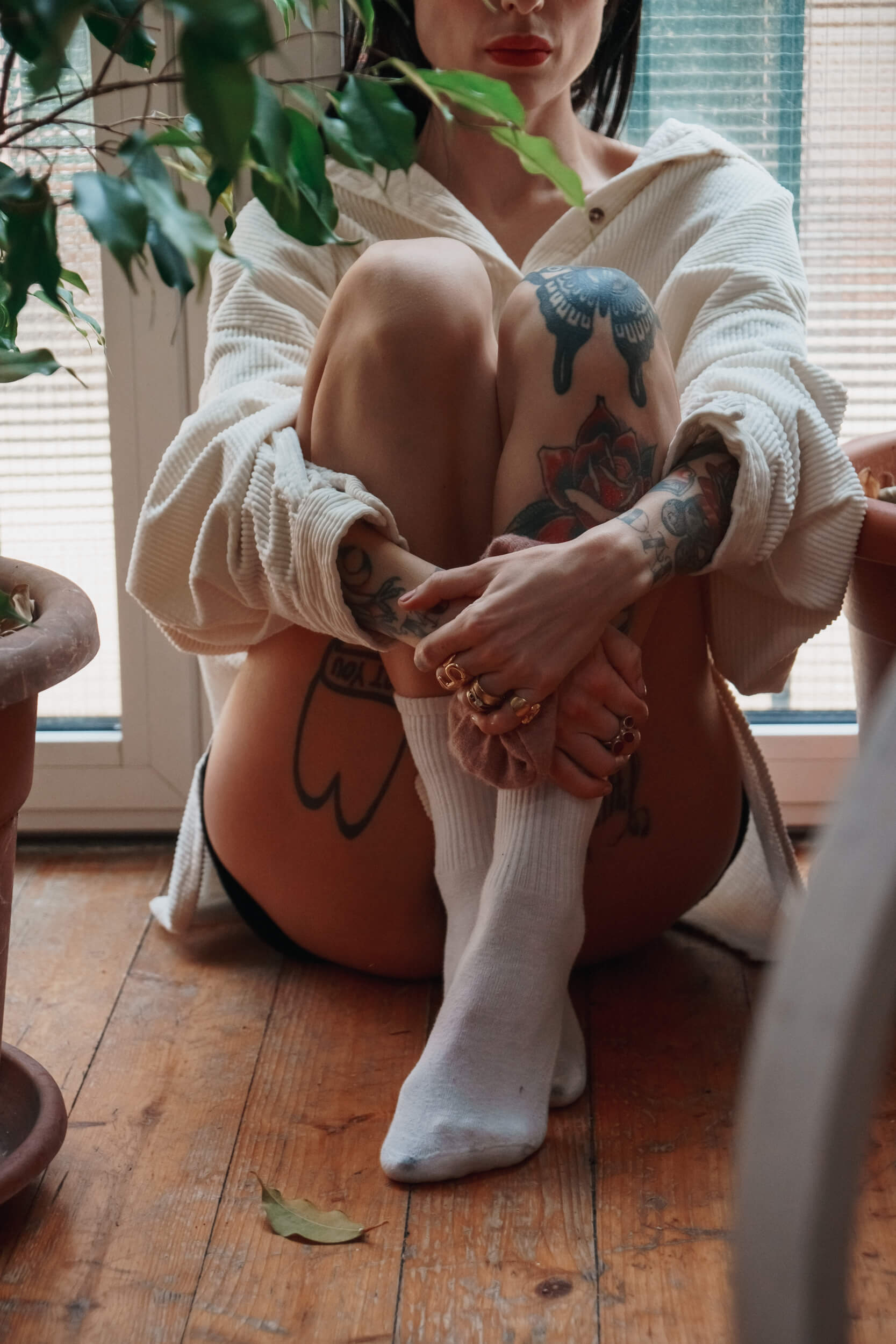
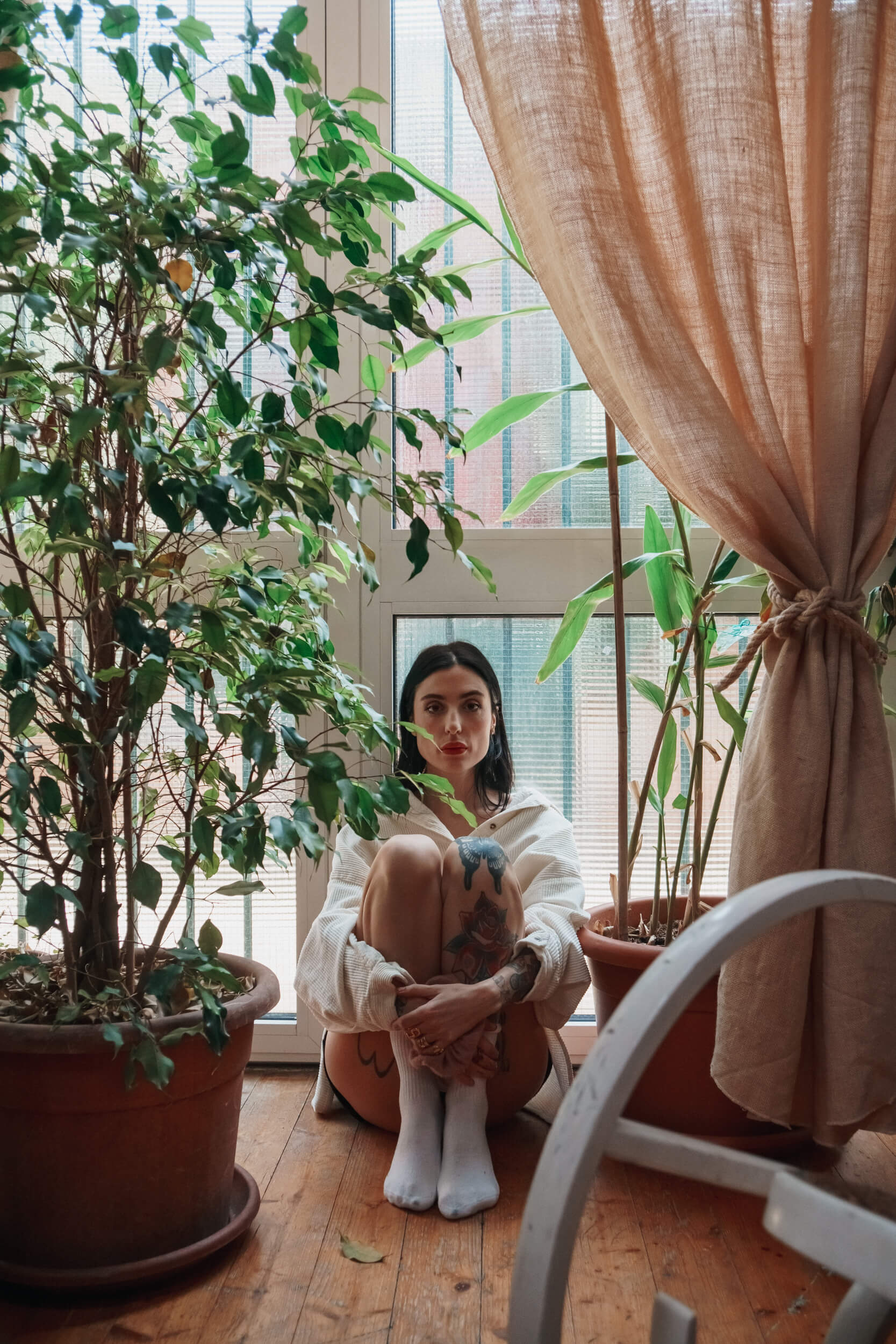
What is it that pisses you off, among many things?
The biggest one is the lack of respect from the people surrounding me. I mean, if we have any kind of real connection, then I demand, the same way I put effort, some effort from the other side. If there’s a lack of respect, then I’m going to be really pissed, it makes me furious. I think that if you want to maintain any kind of relationship, whether it is a friendship, or a romantic relationship, or a family relationship, you need to work for that, you need to work on that, if it’s one-sided, then it’s an unbalanced relationship, abusive at times, and I don’t have any more time to waste, nor to dedicate to things like these: I get pissed off, I explode, and I go.
You often talk about violence against women, but more generally you talk about violence: what is violence to you, and what kind of path have you followed through your life to become who you are today, to be able to speak openly the way you do?
No one ever lets a survivor talk, so, at a certain point, every survivor realizes that they want to talk. When I had my abusive relationship – I went through a year of domestic violence, from which I later managed to escape – I felt like I was in a washing machine, it takes time to take in everything that’s happening to you. Often your memories aren’t even aligned and clear because you experience what they call “dissociative amnesia,” there are lots of gaps, totally blacked-out moments, things you don’t know whether they’ve happened over that time or years before, there’s really a lot of confusion which, in fact, should always be monitored. In anti-violence centers, there are therapists and psychiatrists that bring women out of violence also and above all on a mental level.
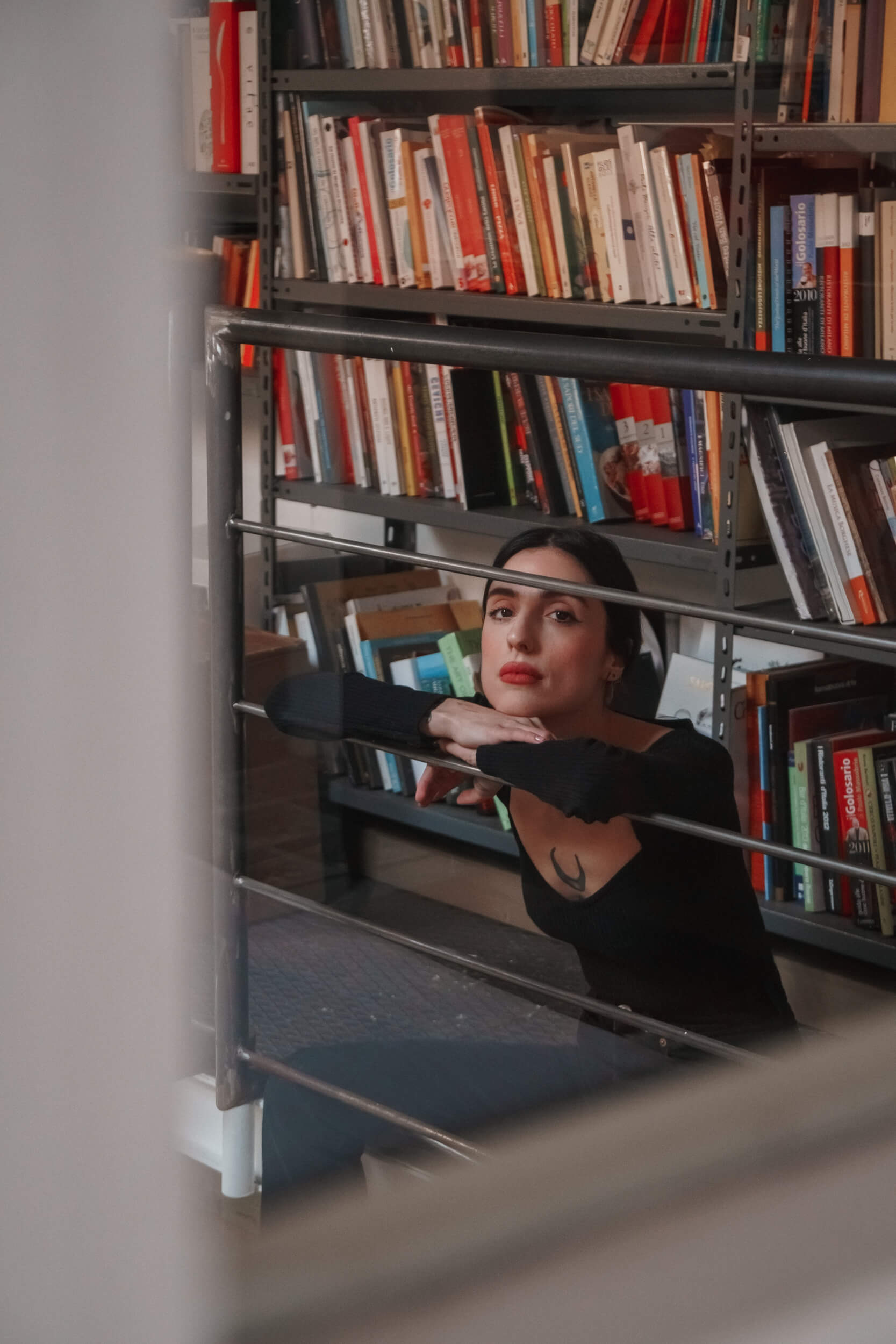
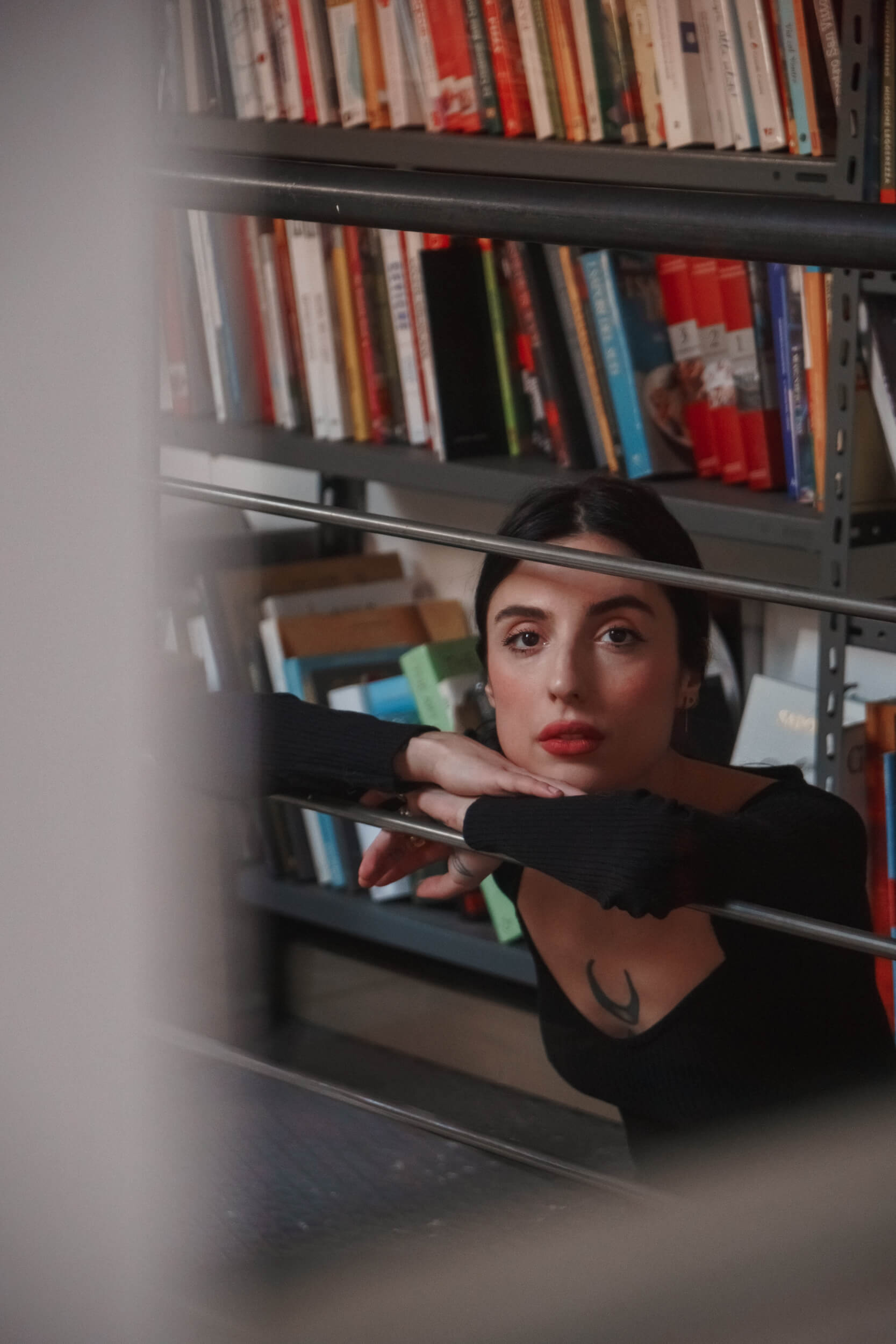
The very moment you accept and process what has happened to you, you realize that it’s something bigger, that it’s not only about you but it’s rather a systemic thing, and it almost comes naturally to you to spread awareness and educate on such experiences in anti-violence centers.
Every time you experience some act of violence, you think you’re the only loser who went through those kinds of things. I remember the exact moment in which I got in touch with the other survivors from the first anti-violence center of the self-help group I was in, and I realized that all of them were telling stories that were exactly like mine, but with different names of abusers. It’s such a cultural, radicalized thing that everything happens in the same way. So, this kind of realization makes you feel less alone, for sure, and it makes you feel part of a network, and to build a network also means to try and avoid that things like that happen to further women. When it happens to you, you’re always alone, and this is the main thing about women who are victims of violence: they’re always alone, isolated.
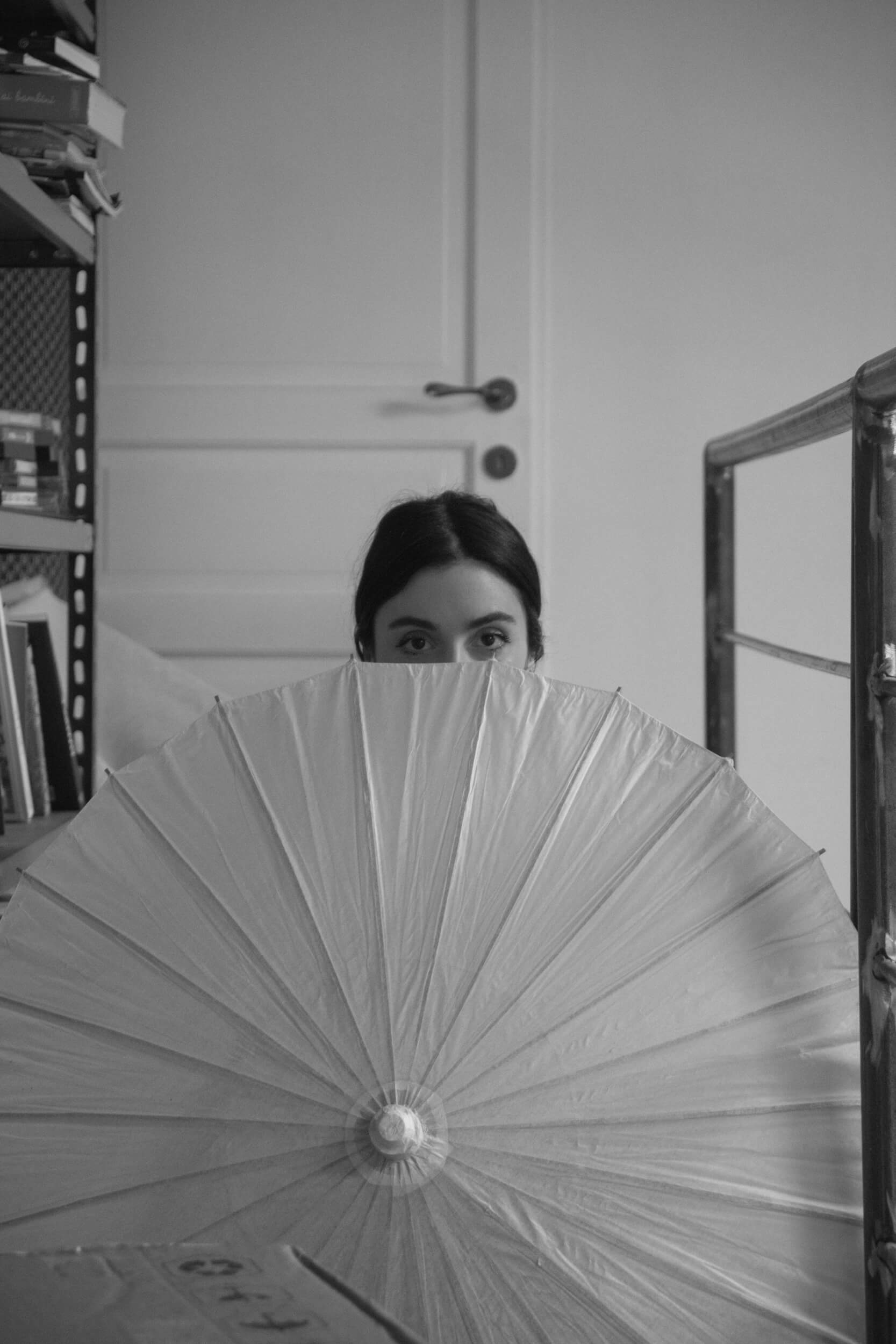
“Every time you experience some act of violence, you think you’re the only loser who went through those kinds of things.”
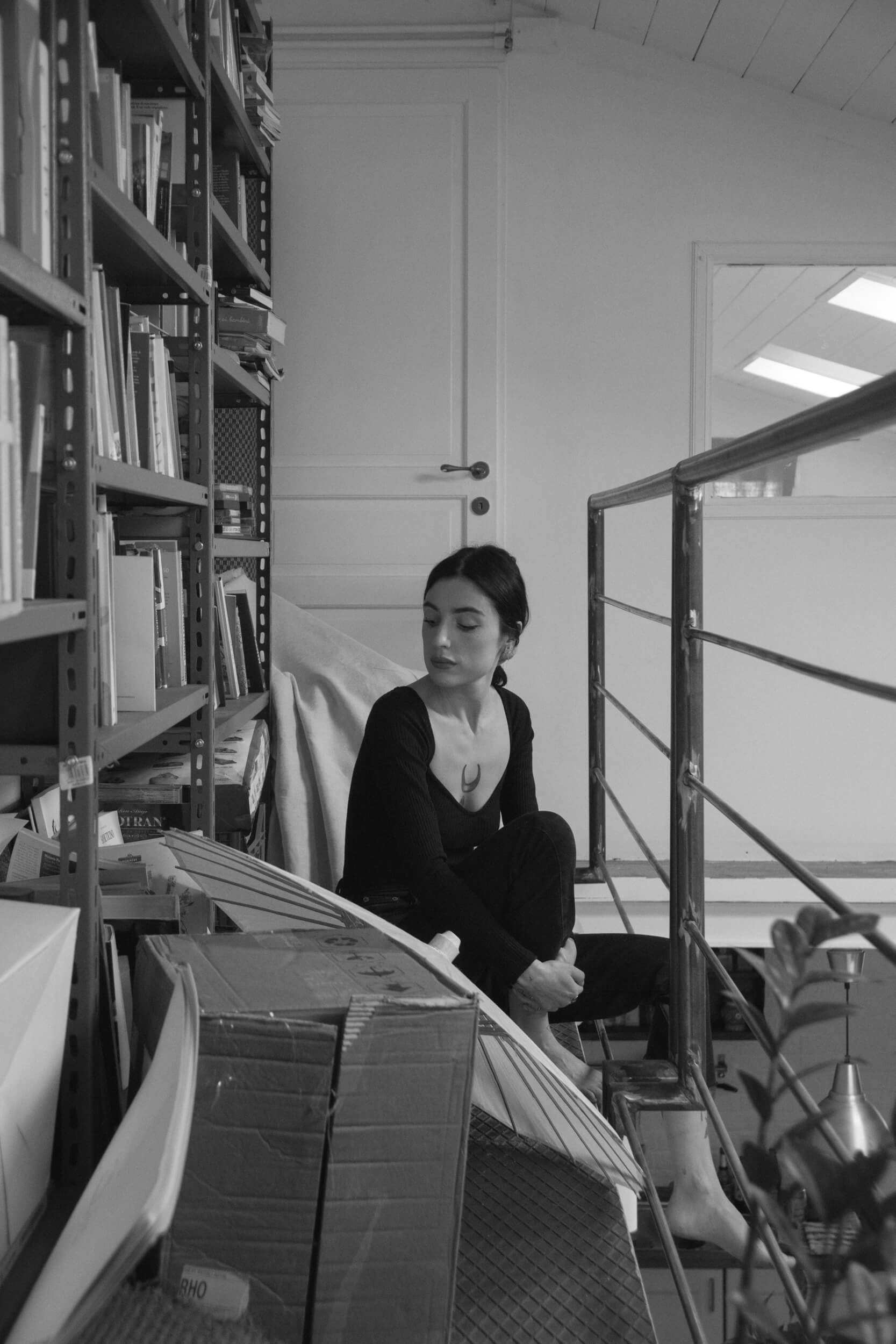
In my opinion – and I’m not the only one to believe this – you’re doing an amazing job talking about taboos that go from menstruations to violence against women: how would you want to see your platform evolve? Because I think it’s very powerful, I’ve been following you for a very long time and you say things that very few people, I think, dare to say out loud, and you do that with such honesty, and you use your own face, so I think it’s very powerful. Do you imagine that all this can go even further?
My platform has always been quite improvised, I’ve never really structured anything. Now, I’ve come to understand I need to separate things, so there are texts like newspaper articles, with a title and captions, and images, that I try to keep apart from the rest so that I can still have some self-reference element because it’s important to me, I need to have my own presence in my own space, otherwise, it would become a space for anyone and of anyone. I think evolution happens outside that space, I guess my space won’t change.
The big thing I’d like to do is to expand my space giving space to other voices to invite in, but, most of all, I want to start going outside, to the places where there are no such voices, I want to go to the traditional media, on the papers, on TV, but it shouldn’t be only me, it should be a chain, made of all the people that belong to this movement because it’s becoming revolutionary, and I’m really happy about it.
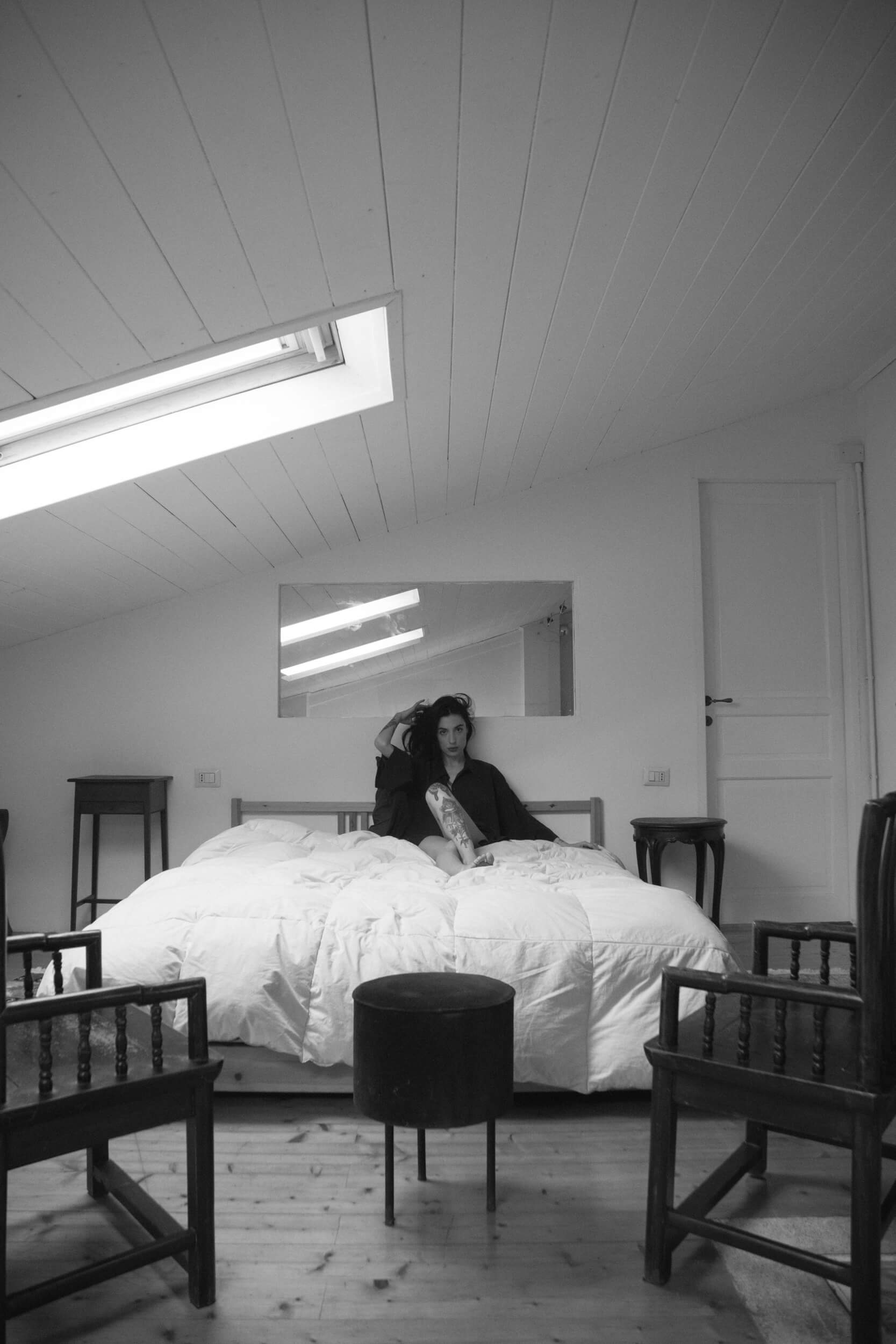
I’m also seeing the first magazine covers, there was Donna Moderna with my friend Sofia Righetti on the cover, talking about ableism, the “Belle di faccia,” Mara and Chiara, who’s appeared on lots of magazines talking about fatphobia, and there are many more women who are paving very important paths. What really matters is to try and change the narration, and you can only do that in the places of power, which have always given us a distorted perception of what real life was like.
So, we don’t want to go there, we don’t want that.
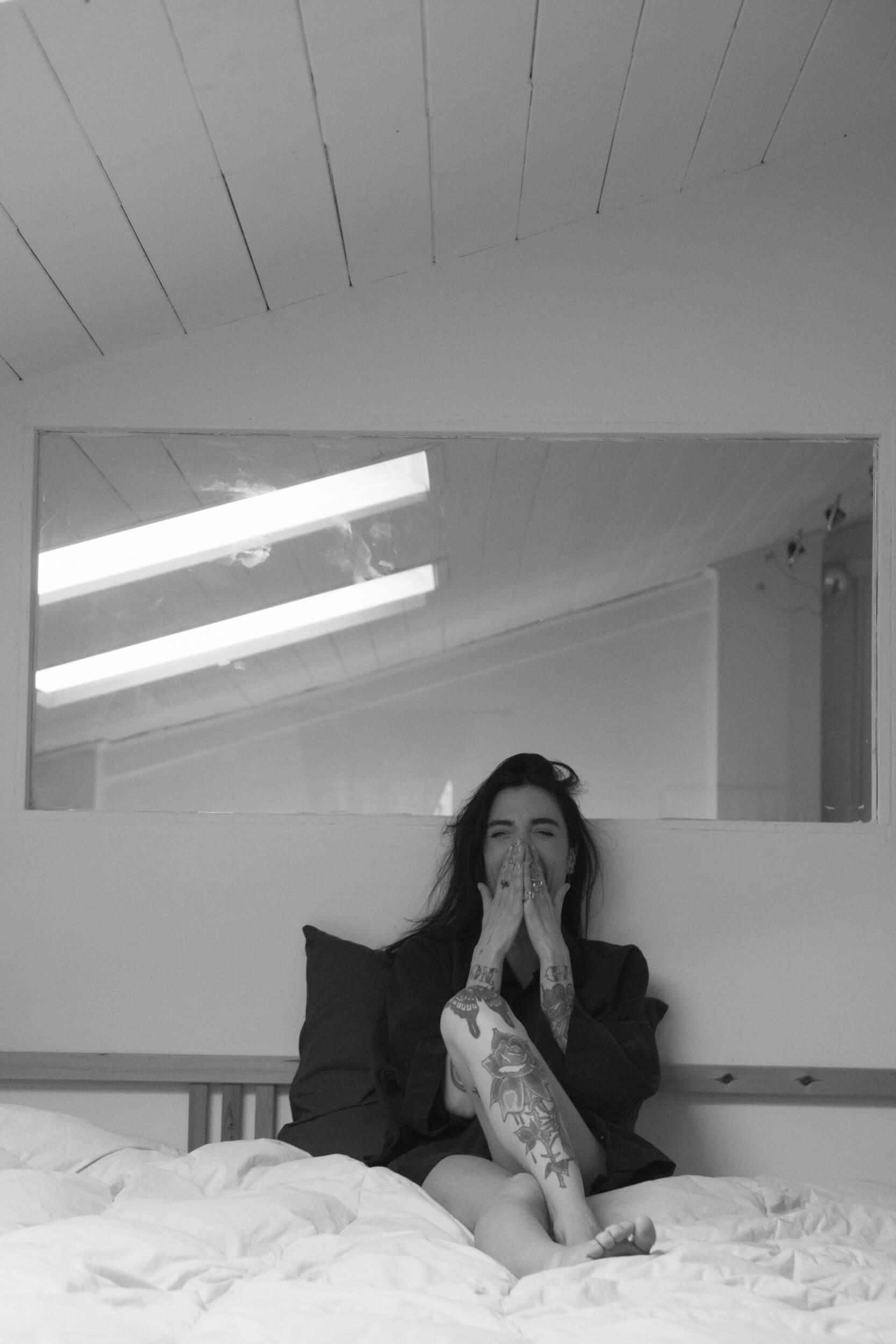
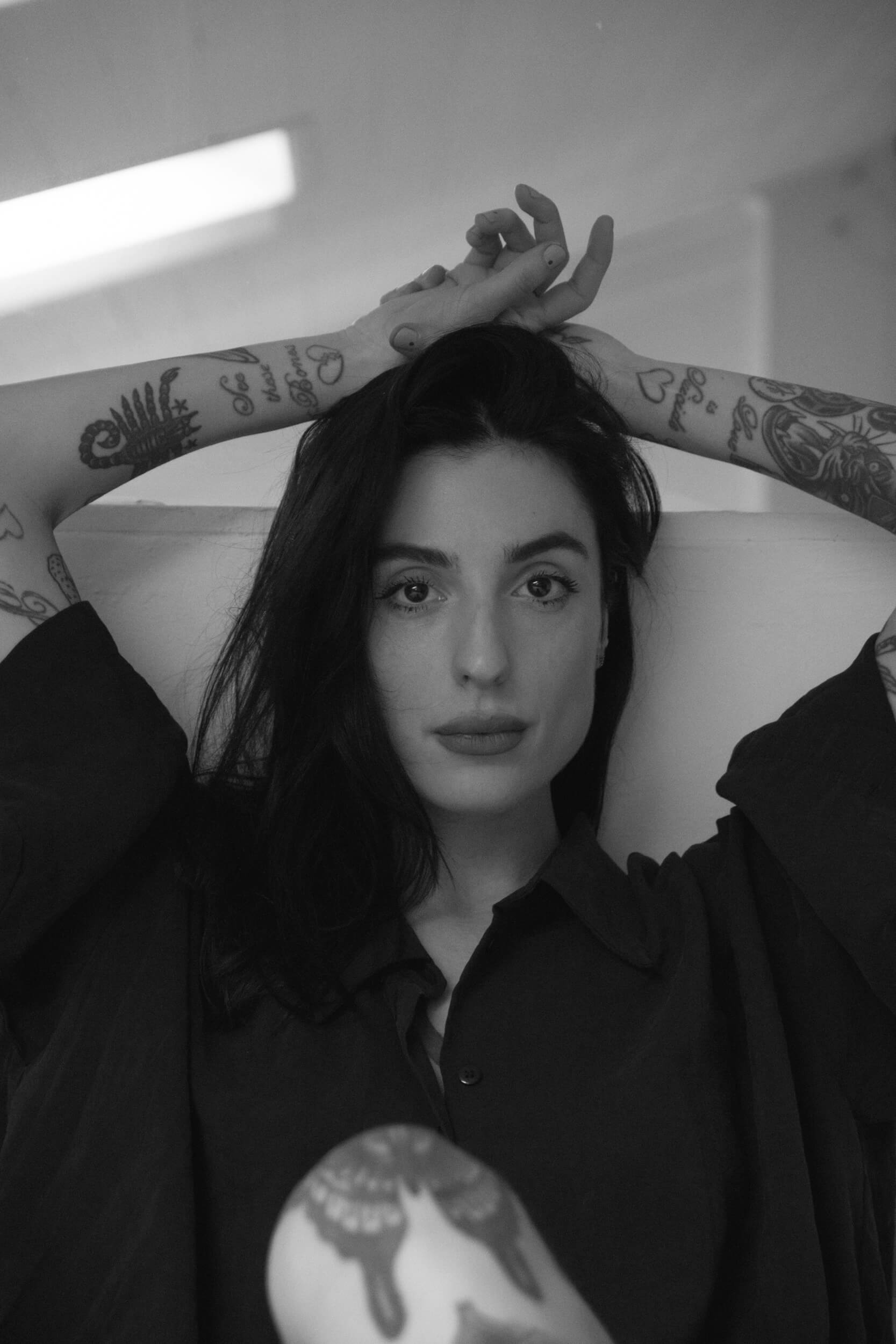
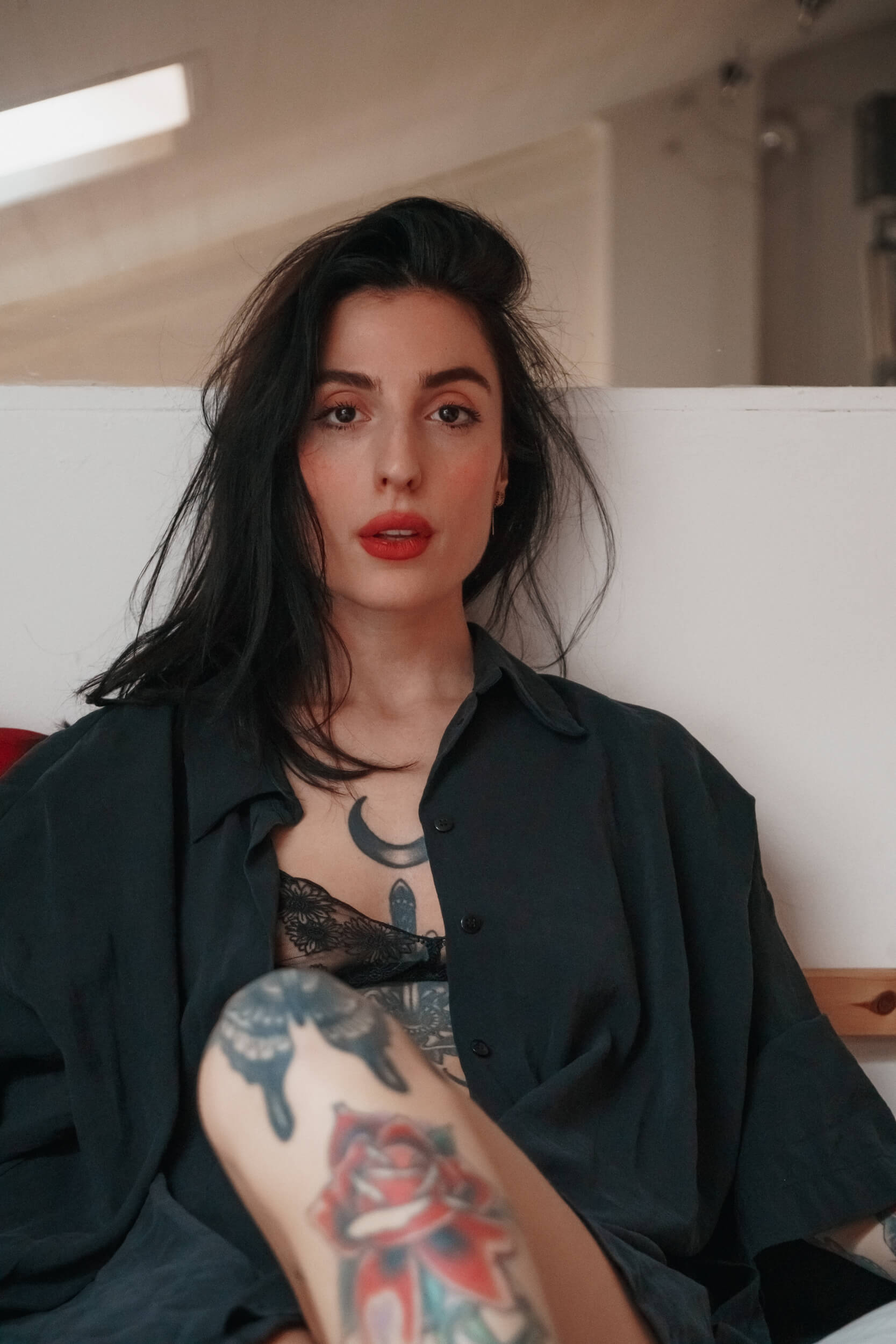
“What really matters is to try and change the narration, and you can only do that in the places of power.”
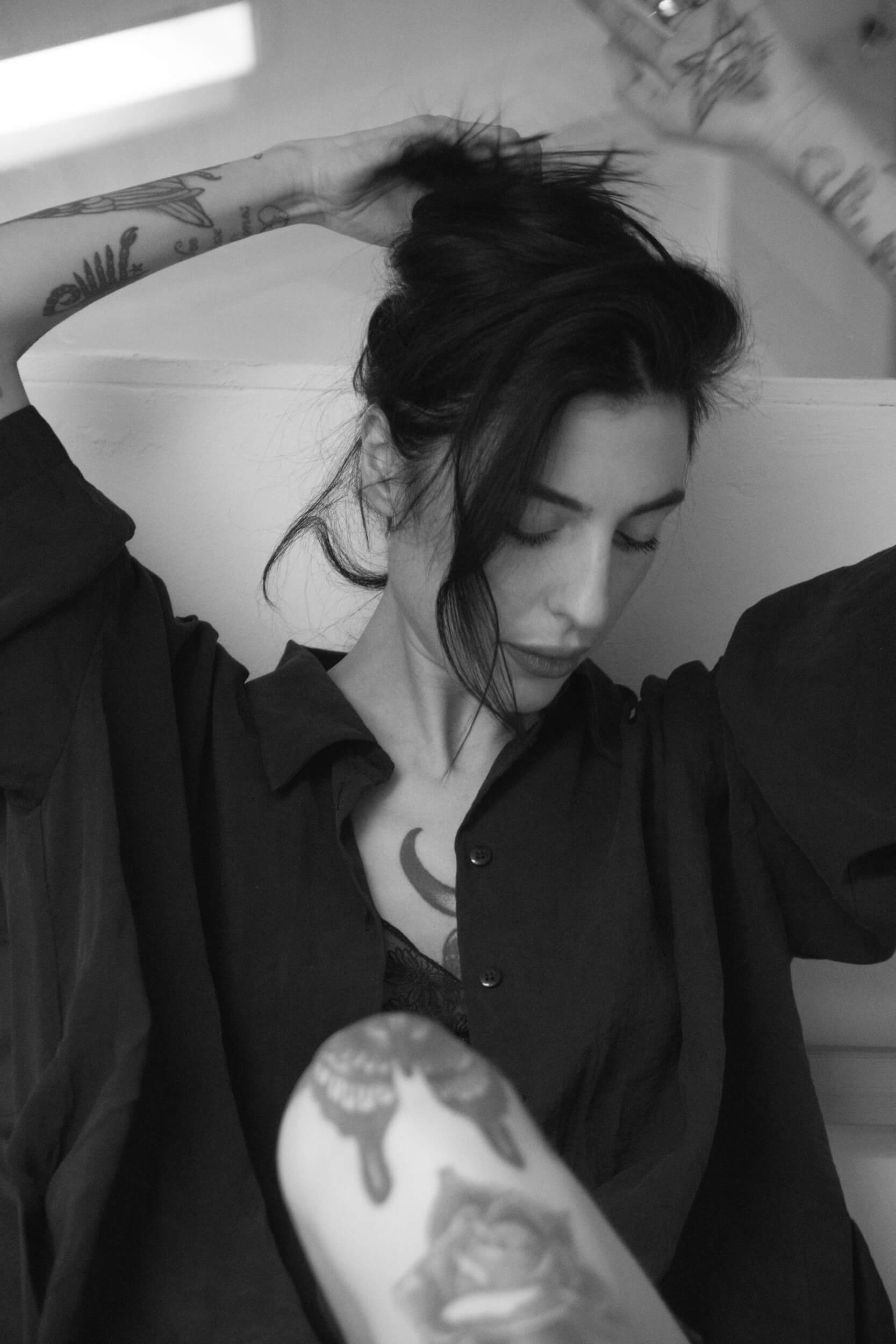
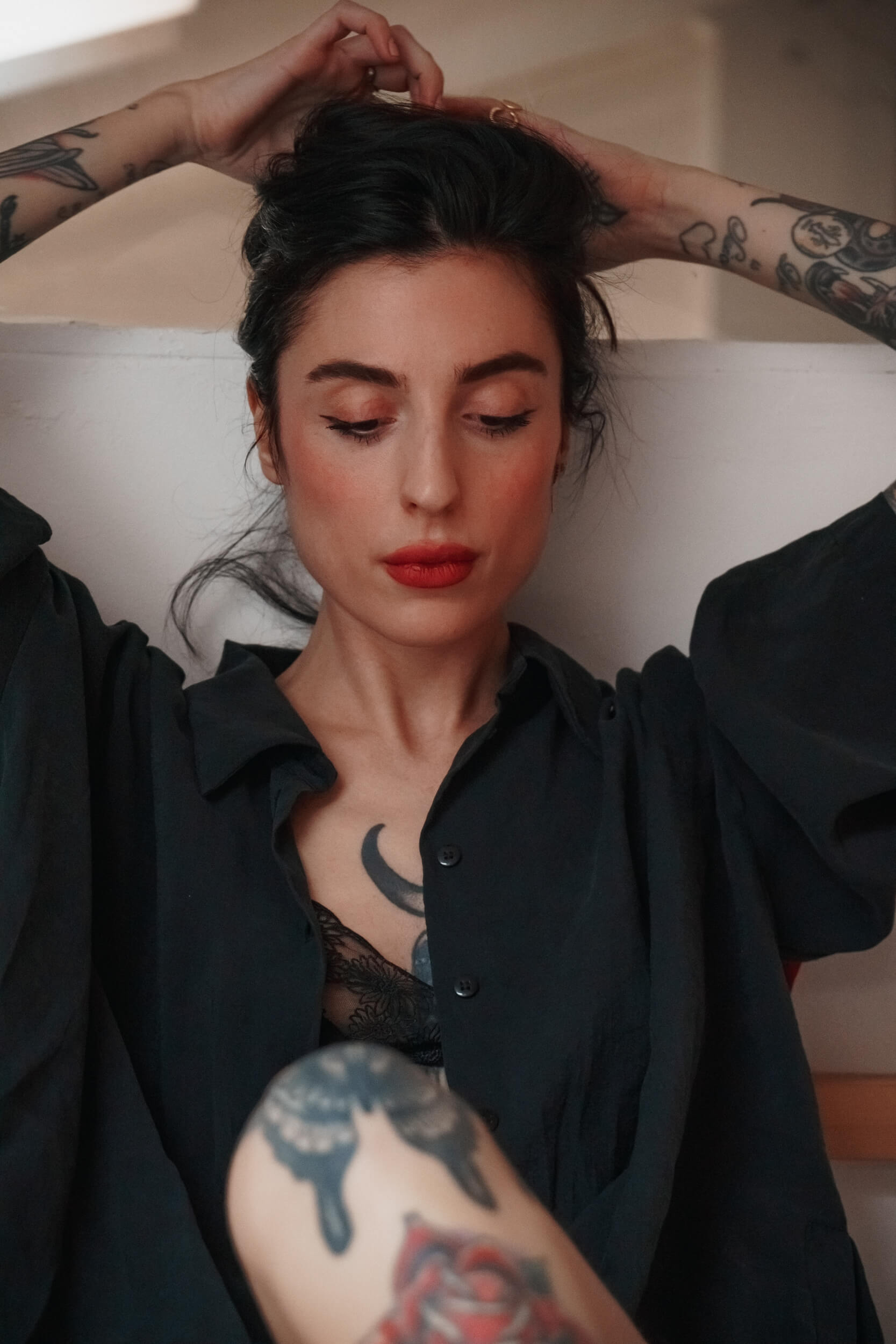
Earlier you were speaking about feeling alone: have you ever suffered from loneliness?
Yes, I have. Violence-wise, women who experience violence find themselves alone, isolated, first because society isn’t ready to welcome them, so there’s a series of systemic superstructures, among which the famous “victim-blaming,” that isolate the woman. It’s like being inside a washing machine, it changes your perception of the world up to a point where you don’t even know what your reactions are anymore. I always use this episode as an example: right after coming out of the cycle of violence, I found myself in the supermarket, in front of a shelf, and I couldn’t remember what my favorite cookies were because I couldn’t remember if it was something that had been imposed on me or if it was really my own taste, I didn’t have any hold over primordial things. From that moment on, I obviously changed life, I changed home, region, city, I changed everything, I changed job, and I moved to Florence, where I tried to put my life together a little bit and fell into a depression that lasted three years and that I handled very well, thanks to therapy, at first also pharmacologic, then simply cognitive-behavioral, which is the one that works best for me – each one of us has their own path to follow according to what works best for them – and it was an incredible journey of self-discovery.
Depression obviously leads to loneliness, because you self-isolate, you need it, and I remember being in an almost embryonal state of my life where I had moments in which I needed someone, I needed my mom, but there were also moments in which I almost didn’t want to talk, there were days at the end of which I realized I hadn’t spoken a word from morning to evening, not even once. That’s something you realize especially when you’re out of it, that it was a fucking hard job to get over all that kind of stuff.
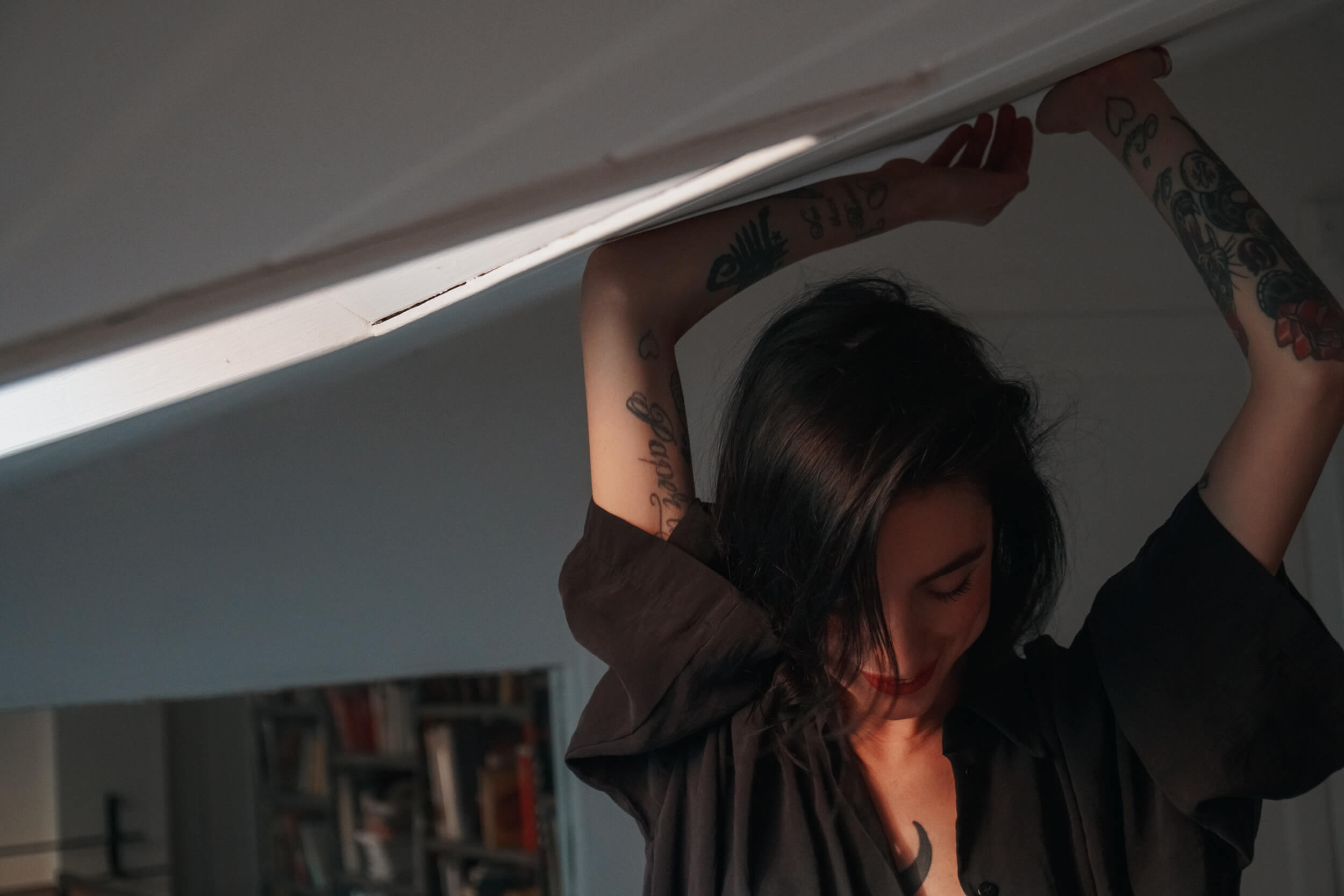
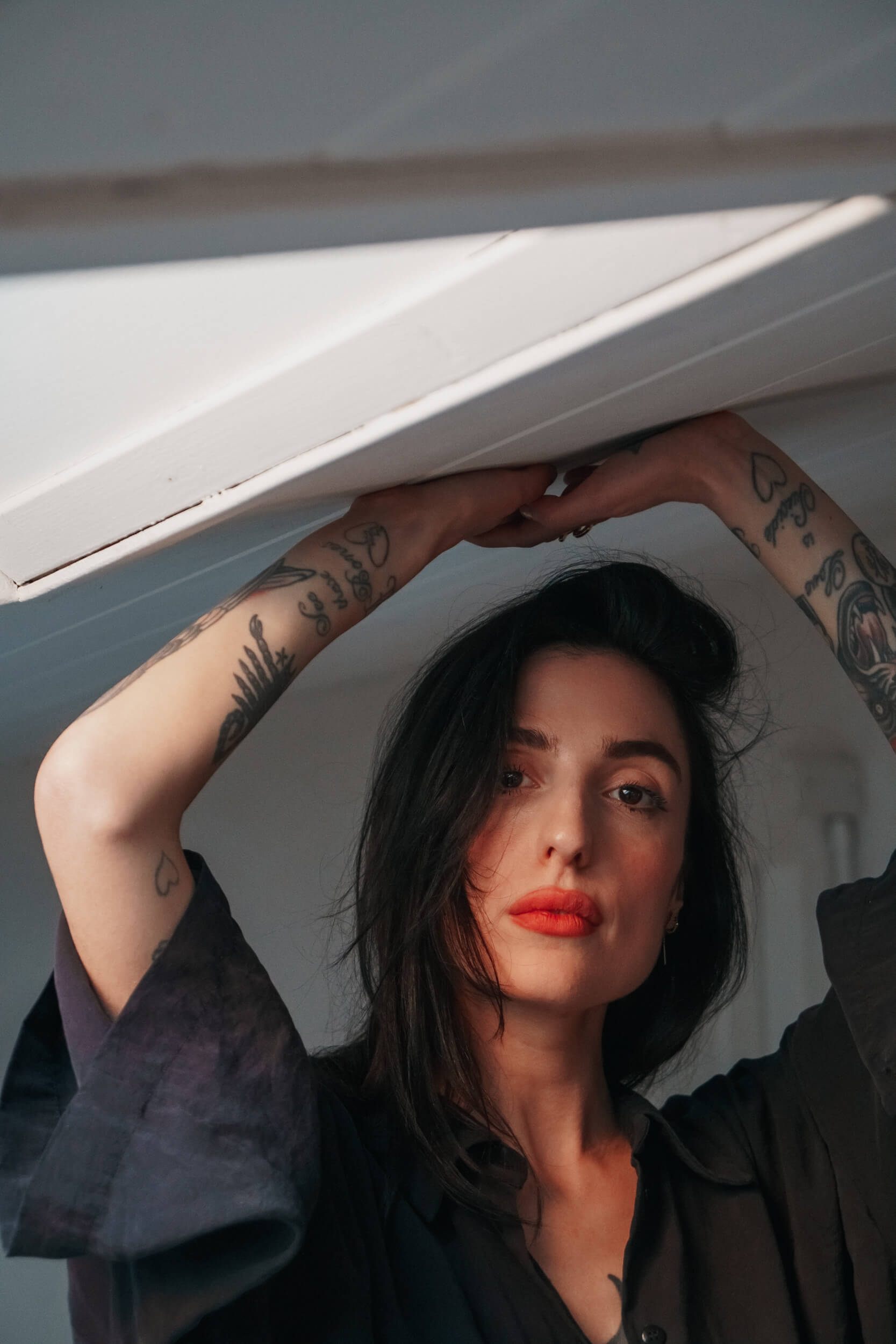
What I’d love to do is exactly to legitimize certain topics, being able to discuss them openly, and you’re the first person we interview on such issues. In fact, in my small way, I realized that I was raised in an environment in which it was totally fine to say something like, “I go to therapy” – I’ve been going to therapy for 9 years – it’s totally fine for me to say that, there’s nothing weird to me about that, also because my parents have always pushed me in that direction, they’ve always told me, ever since I was a child: “what’s the problem.” However, I also realize that that’s still hugely stigmatized, also when I suggest my friends give it a try, or when I recommend it to people who I know have suffered from panic attacks or anxiety the same way I have. It’s a terrible war to fight on your own, also because the more you suffer, the more you tend to isolate yourself from everything else, and then depression comes, it’s a huge undertaking. So, I think that in Italy, as well as in many other countries, there’s still a lot of work to be done. In your opinion, what steps could be made, perhaps even inside institutional environments, inside schools?
Our institutions don’t have something that in the US is vital: the professional figure of the counselor. The counselor has been part of American schools for quite some time also because, being Americans statistically more prone to suicide, depression crises, mass shootings, they’ve understood that to try and contain phenomena on a systemic level as well, and establish inside an institution a reference figure for people in need, could be useful. That’s something that many foreign companies provide. In Italy, there’s still a big taboo around all that. The only time we get to see the figure of the psychologist is when they talk about crimes on TV, they call some psychologist to ask them things like: “why do you think this guy killed 18 people?” So, the fact that the audience unconsciously associates psychologists only to rare occurrences, that are usually current events, the most violent ones, is what makes you think, “all right, the only people who go to therapy are sick people who go out and chop up dead bodies and hide them in the hood of a Panda car.” No, that’s not how it works.
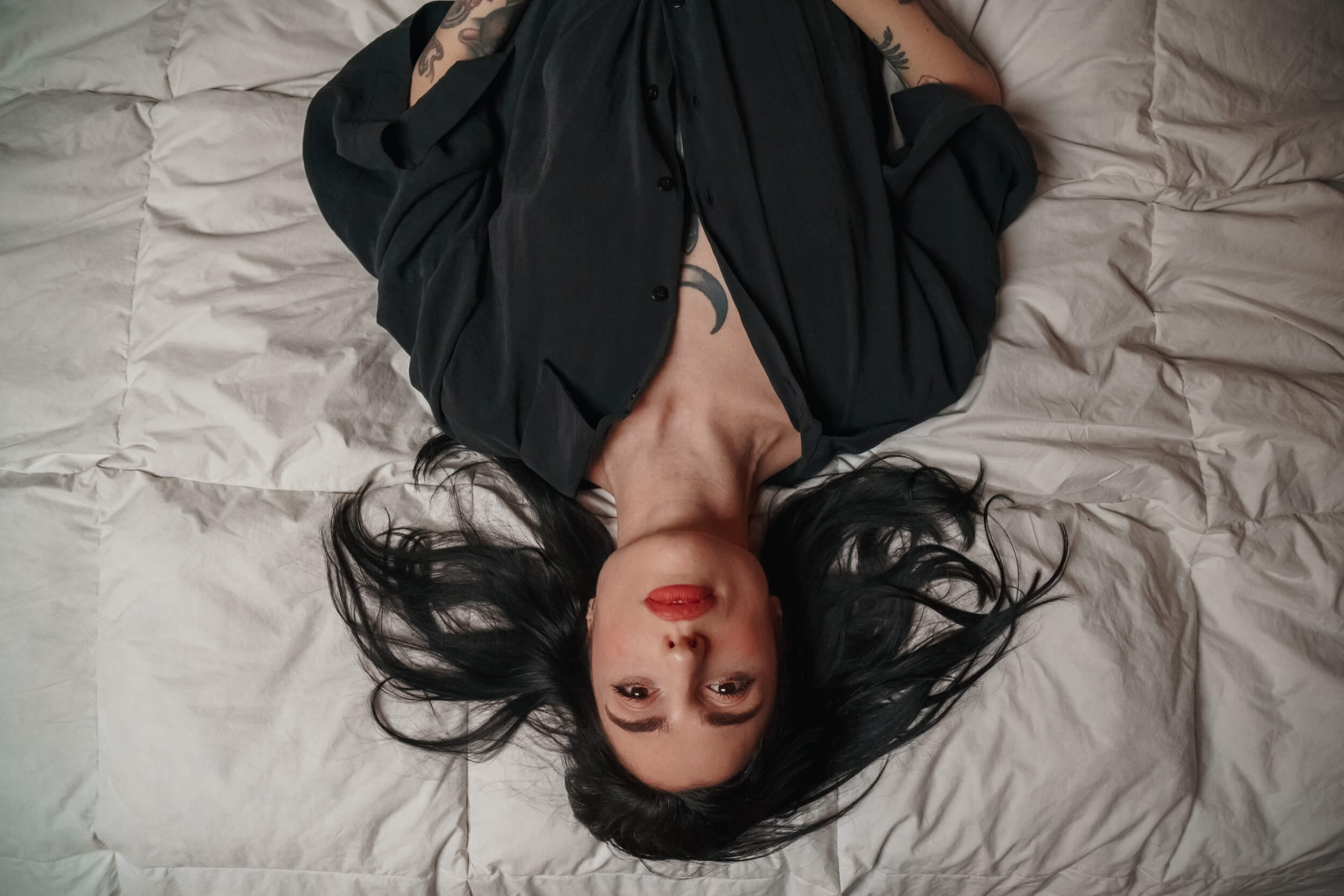
I talked about this a while ago with Tia Taylor, a content creator I really love, I told her how in Italy we’re culturally used to hide things, we’ve always been very good at hiding. The US, instead, brings everything out, people there are culturally used to say everything out loud, also as a consequence of that Amendment stating that the words of those who speak are more important than the words of those who listen, so they’re used to let everything they process out. We, instead, are used to keeping everything in, maybe also because of the catholic moral pervading our homes. When someone suffered from depression or, even in wealthy families, when there were problems such as bipolar family members, or people suffering from some psychological or psychiatric disease, they tended to hide all that. “Where are they?” “Oh, you know, they went on holiday…”.
So, we obviously grew up with a bit of fear of approaching the professional figure of the psychologist or psychiatrist, while I actually think that’s the most liberating thing you can do. I remember that the very moment I called the woman who later became my therapist, I already felt liberated. The first meeting with her was love at first sight for me, but of course, some people need some time to settle, to find the branch that better suits them, but I remember that to me it was like getting rid of a huge load and say, “see? There was no need to stigmatize that!” On the contrary, now that I see all the benefits I’m getting from it, I’d like to say to all people, “what the fuck are you doing?” Of course, the State needs to do something about it, whether it is some mental health education in schools, or even education to empathy because empathy allows you to understand what’s the limit to be put on toxic narrations.

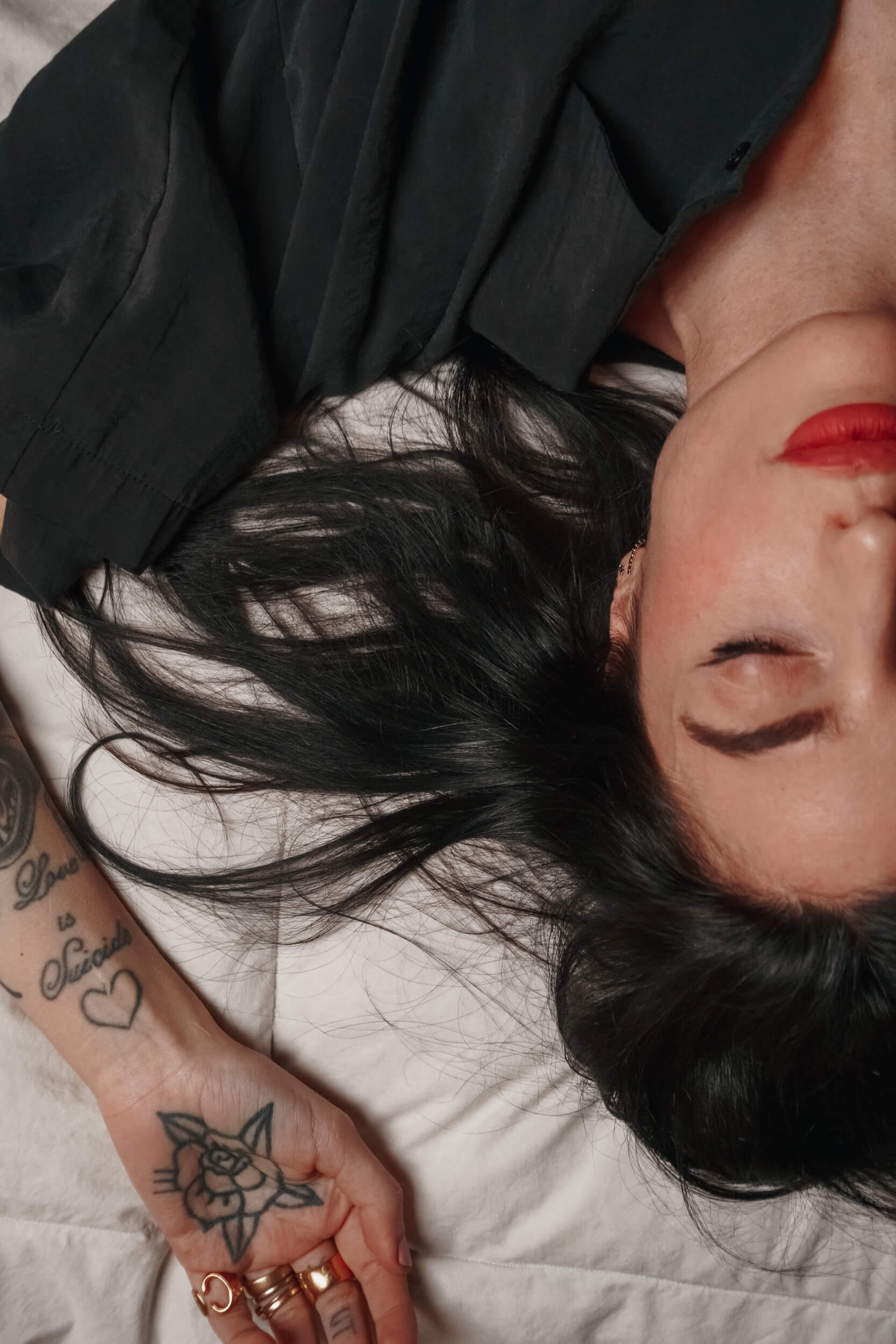
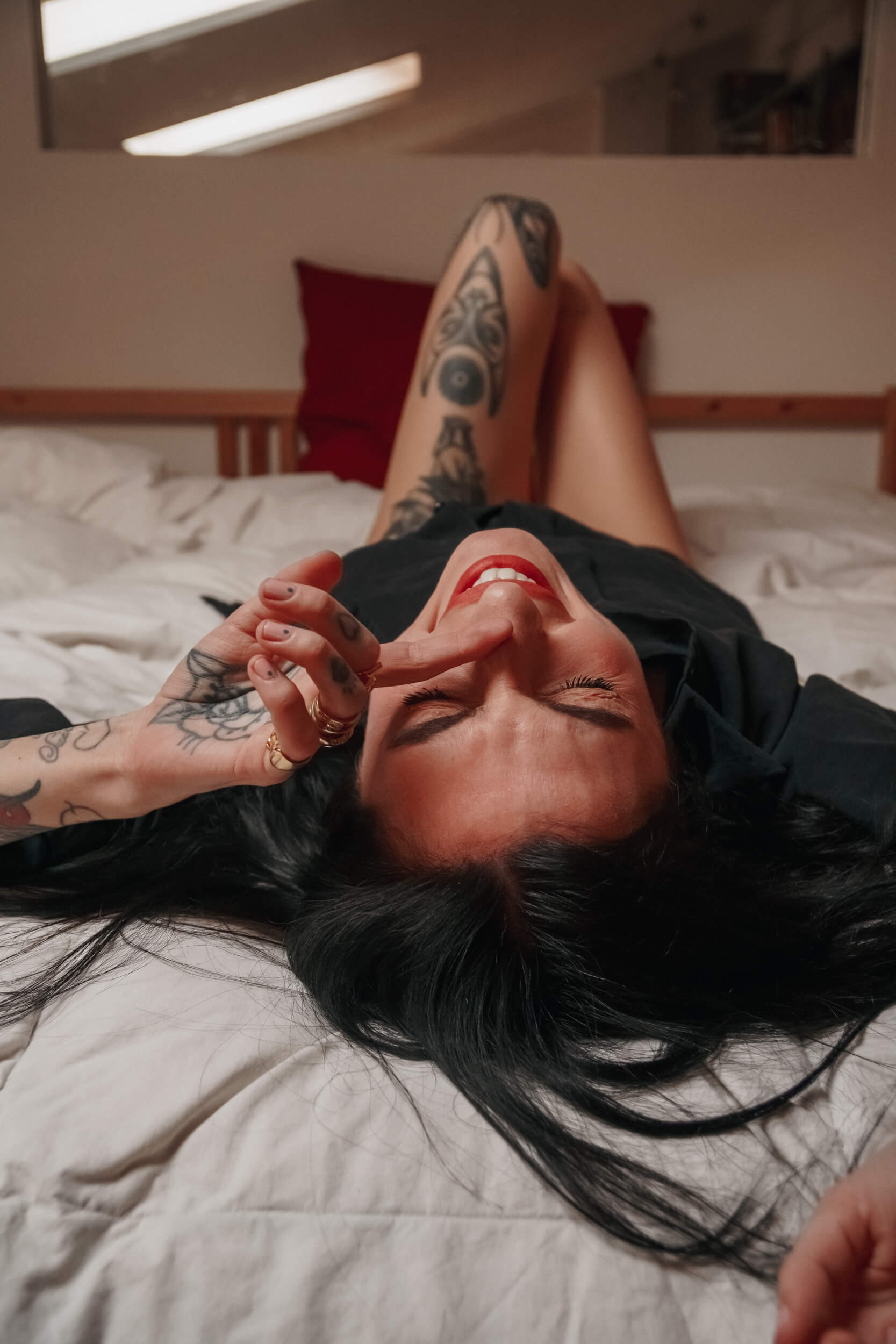
You said, “The power of a woman must never depend on the amount of flesh she decides to expose to the world,” and you also said, “I don’t take my body seriously, it’s not serious to me.” What is your body to you?
It’s something that’s constantly changing. Something that I’ve never wanted to see, maybe as a reaction to all those stereotypes imposed by society: “your body has to be immaculate, a blank canvas, you have to keep it nice,” “be careful, respect your own body, don’t have too much casual sex, don’t you ever paint it.” So, what did I do? I had a lot of casual sex and I covered my body in paint [laughs], as a statement that things didn’t work that way. It’s not something serious, it’s not static, it’s something that can potentially become a cage. I wanted to do everything I could to avoid my body becoming a cage and to do that, I needed to be the first one to see it from another perspective.
At first, I thought that all tattoos had to have a meaning, but now I’ve stopped giving them important meanings because you don’t need to promote something that you can do on your own body. Our body is just an extension of what we are. I am also the sushi that’s tattooed on me, the jewel box with the underlying quote “mai una gioia” (never a joy), your body is something that amplifies every side of you, it’s no bearer of some moral, which cannot be associated to the body.
There’s no logical connection between being of moral value and having a body that’s smooth, clean, and in shape.
My body is an instrument through which I speak, but at the same time it’s not so important, and people need to understand this. The body is beautiful when it can be seen, but it’s me the person who decides when to let it be seen, and I don’t want anyone to judge how much I show it.
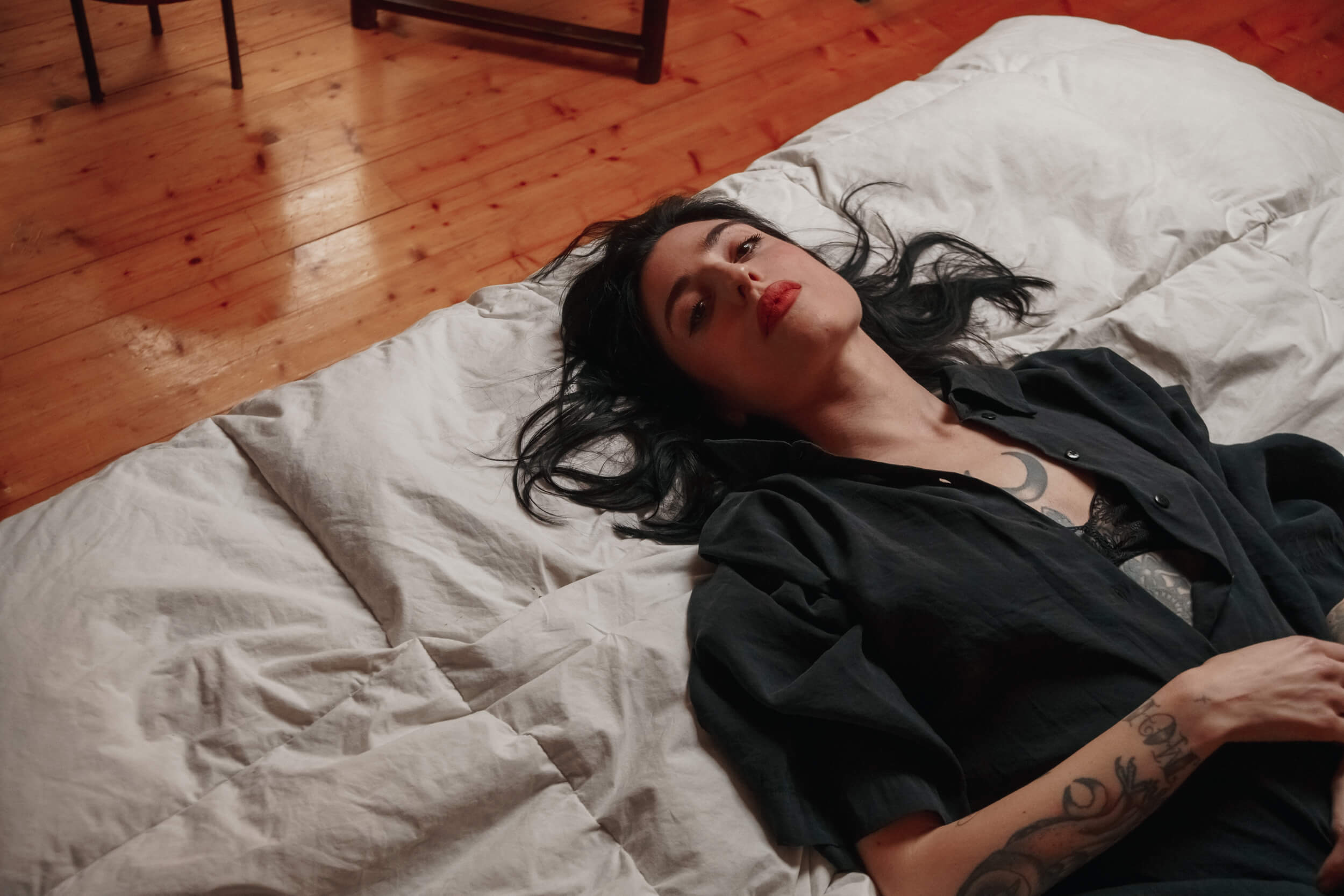
“I wanted to do everything I could to avoid my body becoming a cage… Our body is just an extension of what we are.”
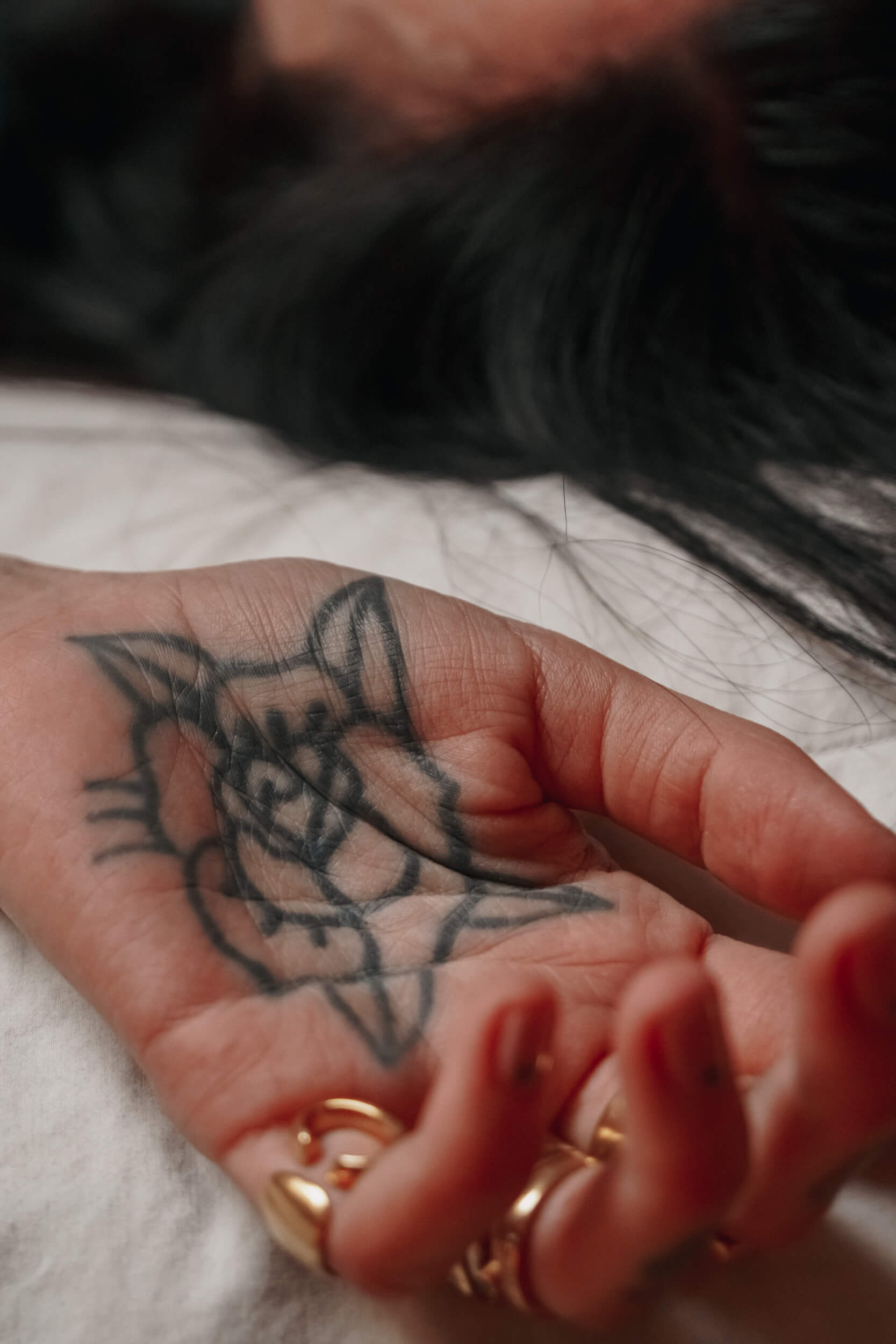
Is it something that pisses you off to read comments saying things like: “you, a feminist, are showing yourself like that…”?
No, I’ve never given a fuck, not even when I didn’t use to do these kinds of things on the Internet. It’s been a natural evolution and what upsets everyone the most. The idea that a stranger, behind a phone, writes to me, under a picture in which I feel beautiful, that “I’m a cock-sucker,” doesn’t – mustn’t – bother me in the least. I’d love for people to be educated in this sense because, unfortunately, it still happens that strangers, from the other side of the phone, ruin other girls’ lives, and this is absolutely ridiculous and, above all, it’s ridiculous that someone, from the other side of the phone, has the power to do that.
What was the best “fuck you” of your life?
We’ve got options, you know… I’ll tell you my top 3.
My number one “fuck you” was the expectation that job-wise, everyone wanted from someone like this, “cut out for writing.” For eight years I haven’t cared about that, I was already writing for GQ, and I was starting to write for Playboy, but I wanted to be a bartender, I didn’t give a shit, I liked the counter, I liked nightlife, I liked pouring drinks, I liked the platform that felt like a stage to me, I liked the fact that I couldn’t remember the names of my customers, but I knew what every single one of them drank, I knew exactly what drink each person inside that bar had. I wanted to take my time, so that was my biggest “fuck you”, I took my time until I felt ready to say, “yes, now I write and nothing more.” And I did it with greater consciousness.
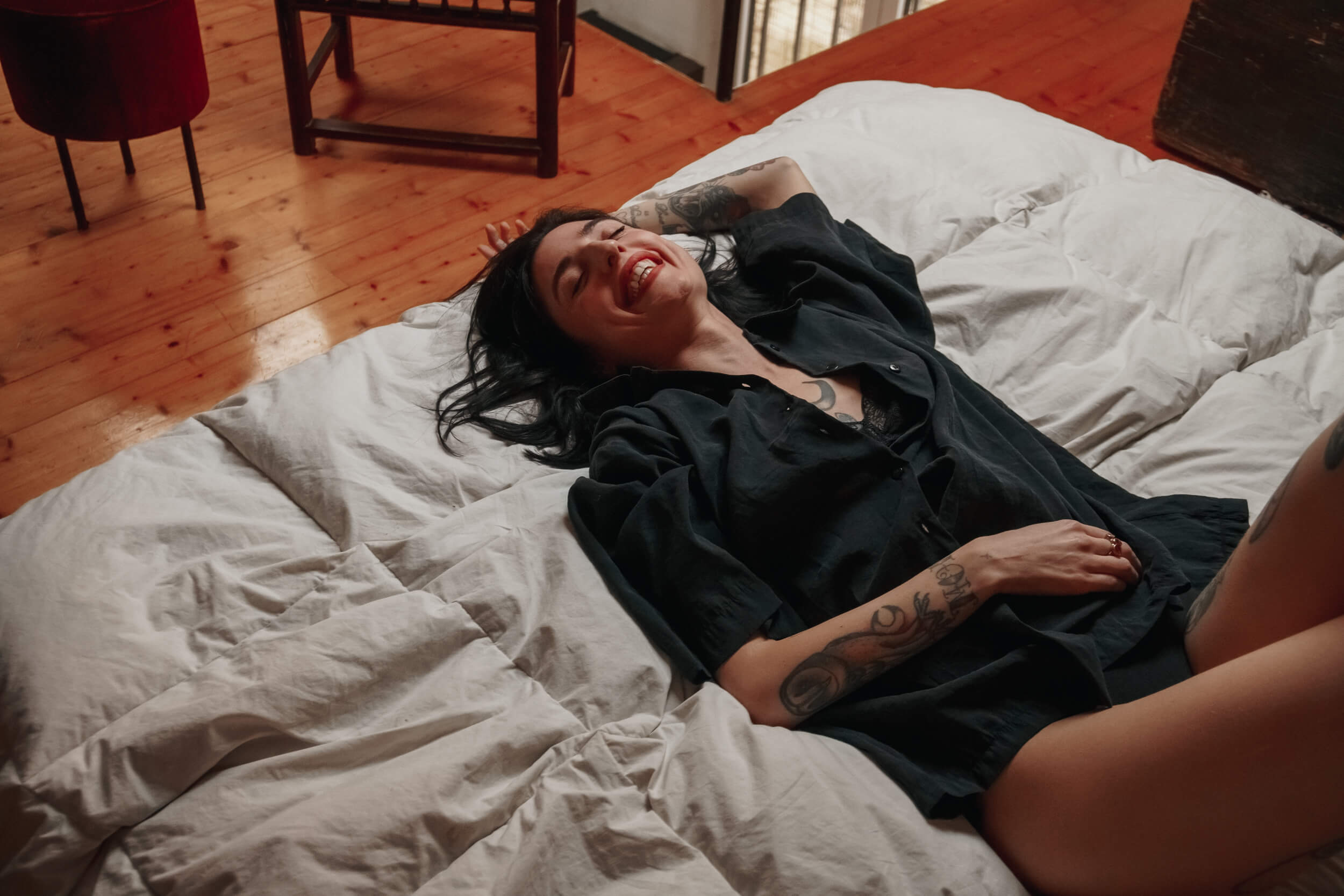
My second “fuck you” was when everyone expected me to give up, they thought I was going to stop, but I didn’t stop. I started digging even deeper, with my foot on the gas, and all those people now try, from time to time, to remind me that I, too, can fail, and I say, “sure, failure is human.” There’s a taboo around failure, as well, but there’s also the taboo of necessarily having to struggle to accomplish things because if you don’t struggle, you’ll never get anything good: that’s bullshit. To listen to your instincts precisely means to do things with little trouble because you’re doing something that you like and you’re good at. If you’re really struggling so much, “fake it ‘til you make it,” then it means you’re not pursuing anything you’re keen on, you’re not doing anything that makes you happy.
Maybe the means through which you achieve that something could be a struggle, but to do that something must be simple…
Exactly, but even just to express yourself, to express your own personality doesn’t have to feel like some act of violence against yourself, it should be simpler than that. So, my second “fuck you” was to all those people who thought that I wouldn’t have made it, or that I had to work very hard to manage to talk about these topics because they saw me as an unstable person. I’m unstable, but I do lots of nice things anyway, so fuck you! [laughs]
My third “fuck you” was the one I said when I went out of that house from which I’d gone out the last time. I had already gone out of it twice, the third time I said, “I can’t back down and turn around anymore.” That was the most fuck-you of all fuck-yous.
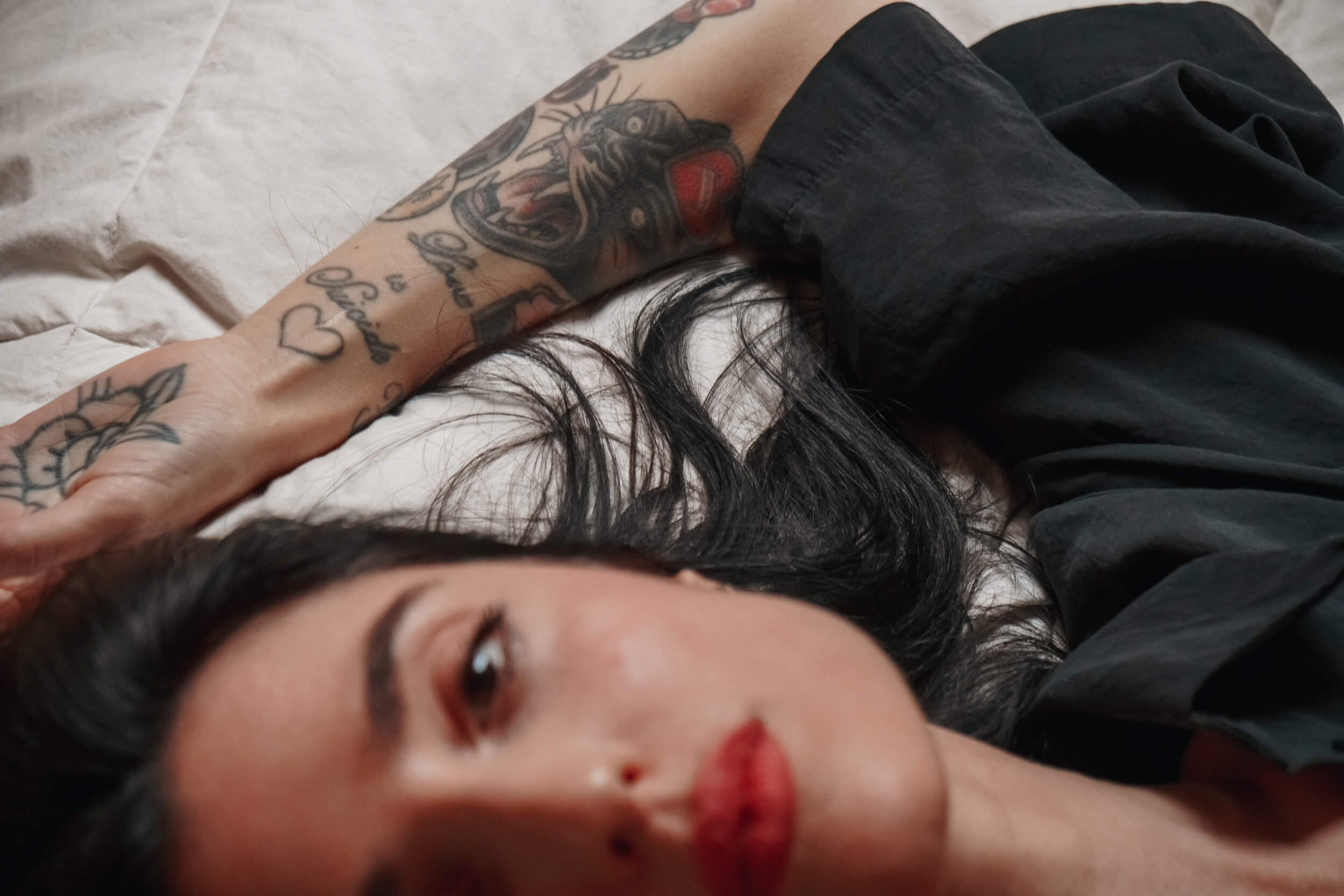
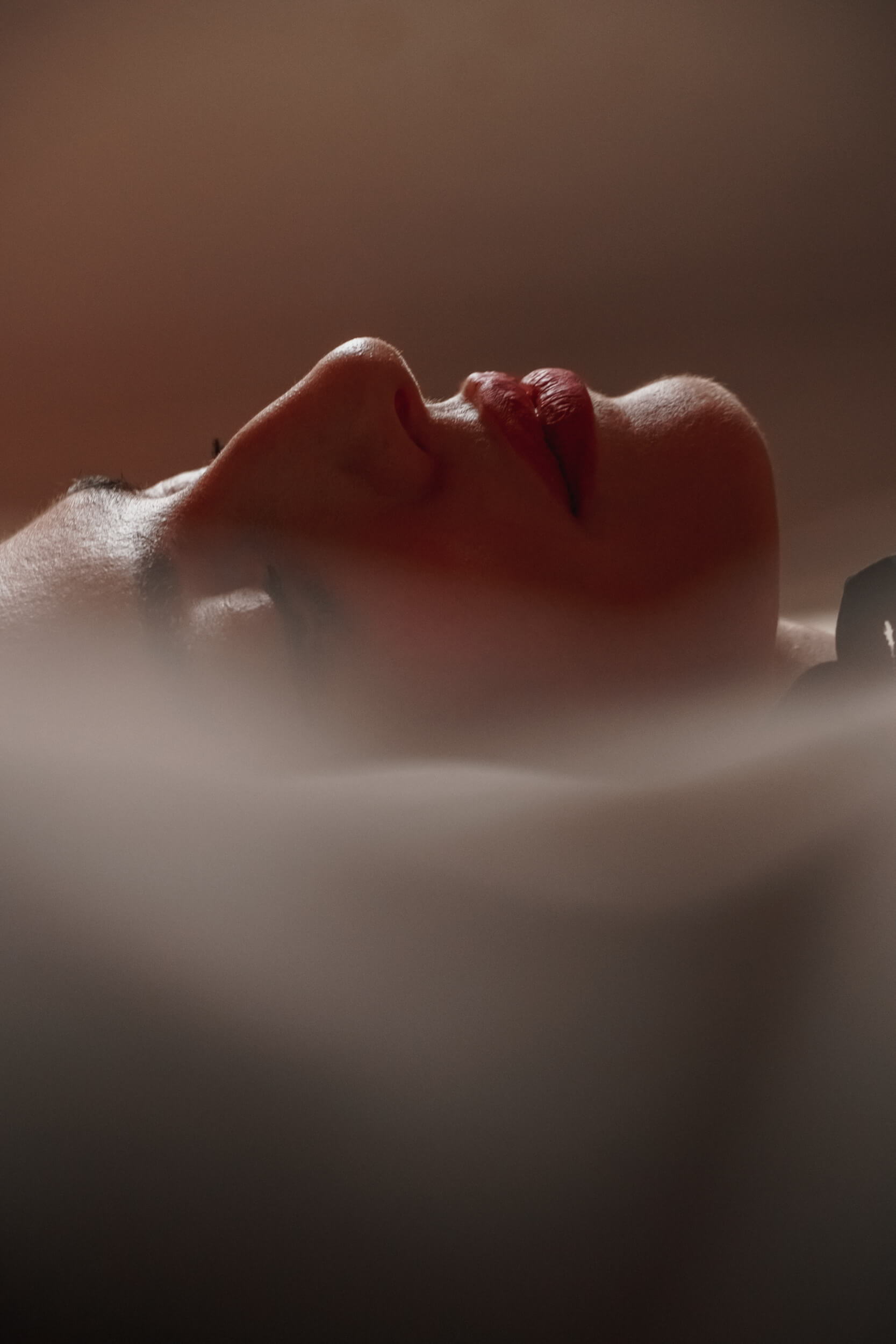
“I’m unstable, but I do lots of nice things anyway, so fuck you!”
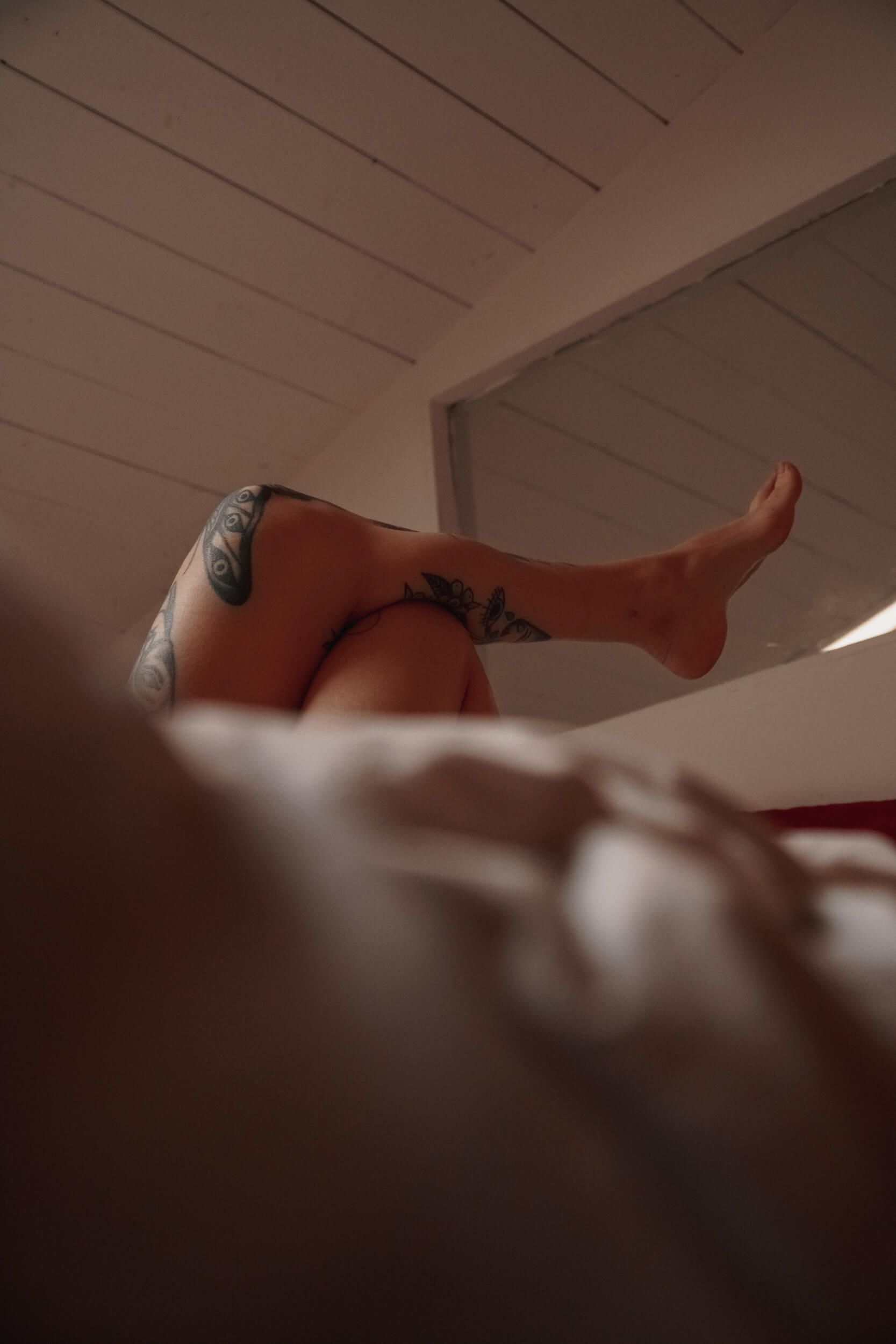
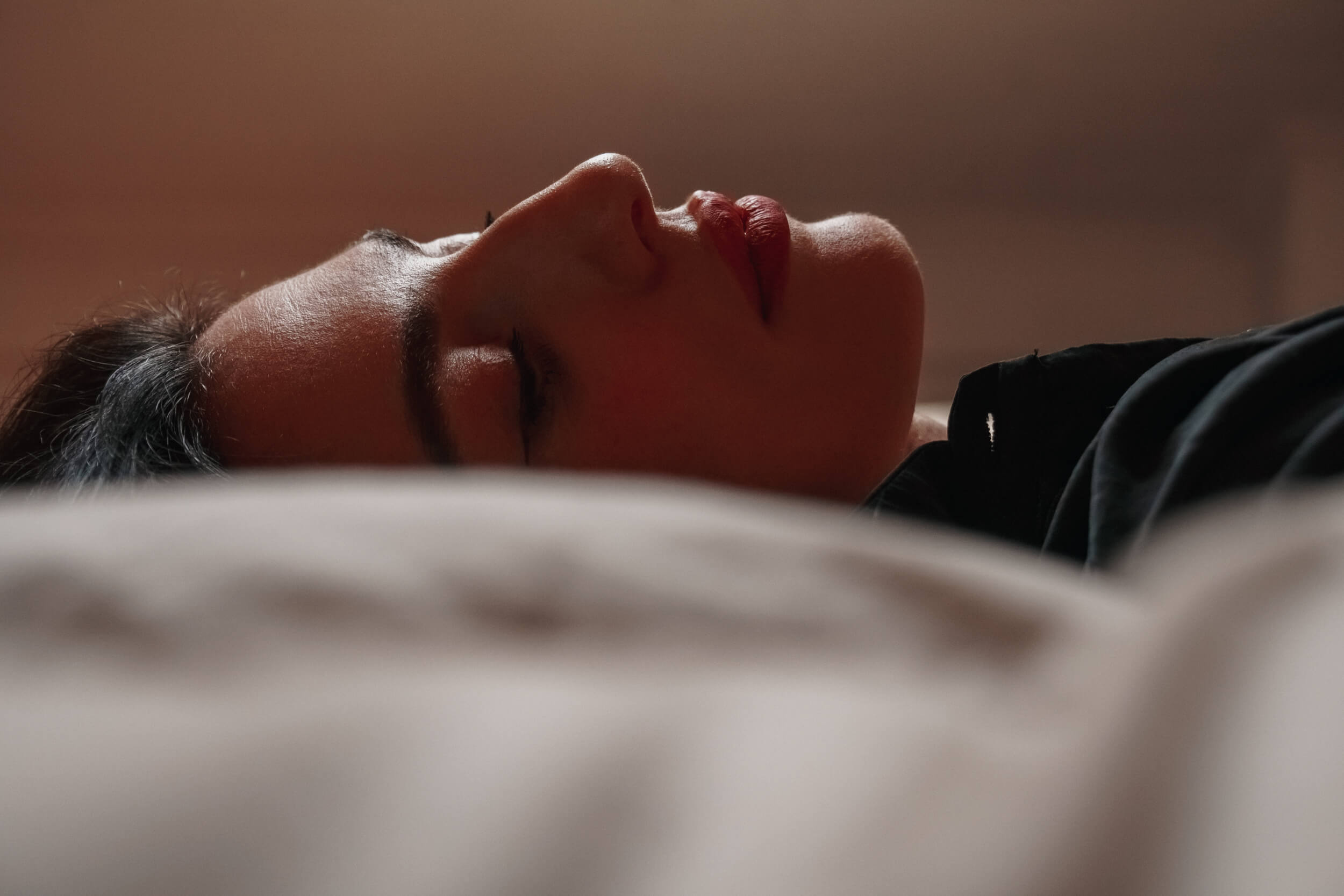
Earlier, while we were shooting, you talked about consistency, about being consistent. How important is it to you to be consistent in your life?
To be consistent means to be honest with yourself. To be consistent is everything because, if you’re not consistent, then it means that you’re subject to something from the outside that’s distorting your yardstick, that’s distorting your way of expressing yourself, this is consistency, in my opinion. Consistency is also honesty, sometimes there’s nothing wrong in saying “I don’t want to,” or “I’m not interested,” or “I’m doing this because it’s easier,” there’s nothing wrong, that’s consistency, as well. It takes courage to be consistent, that’s true.
What’s the latest thing you’ve discovered about yourself?
The latest thing I’ve discovered about myself is that I can acclimatize. I’d already found out about my patience, and I didn’t think I could be patient; then, with the pandemic, I discovered that not only am I patient, but also adaptive, I’m an animal that has learned to acclimatize, and I like that, I’ve done well and I want to say it out loud to myself, I’ve done really well.
Earlier you talked about writing, you said that you did that when you felt like it was the right moment. Is there an article, something you’ve written, that set you free from something, or that you’re particularly proud of, or that you’ve particularly enjoyed writing?
I’m sure that the best thing I’ve ever written is yet to come, but I’m happy about lots of things I’ve written, 9 out of 10 are things that I’ve never made public because there’s a whole section of writings that I just keep to myself, as they’re obviously more intimate. I’m certain that one of the best things I’ve written, and that’s been published, is this article that I sometimes mention, which is always on GQ, titled “La necessità di fare sesso come voglio” (the necessity of having sex the way I want).
I wrote it just a few days after escaping from that house, with a threat of revenge porn from that one person – a gentleman from top to bottom; so, I wrote an article about Tiziana Cantone, who had very recently committed suicide, and I wished that the law intervened in time to do something because the same way you put online the reputation of a person with just one click, there must be some law that can control these issues as fast as a click. It took three years for us to get the law 612 ter, which regulates the non-consensual sharing of intimate material, and that’s certainly not enough.
That article, I believe, was a turning point, it pushed me to investigate more in-depth the movement of body liberation and feminism.
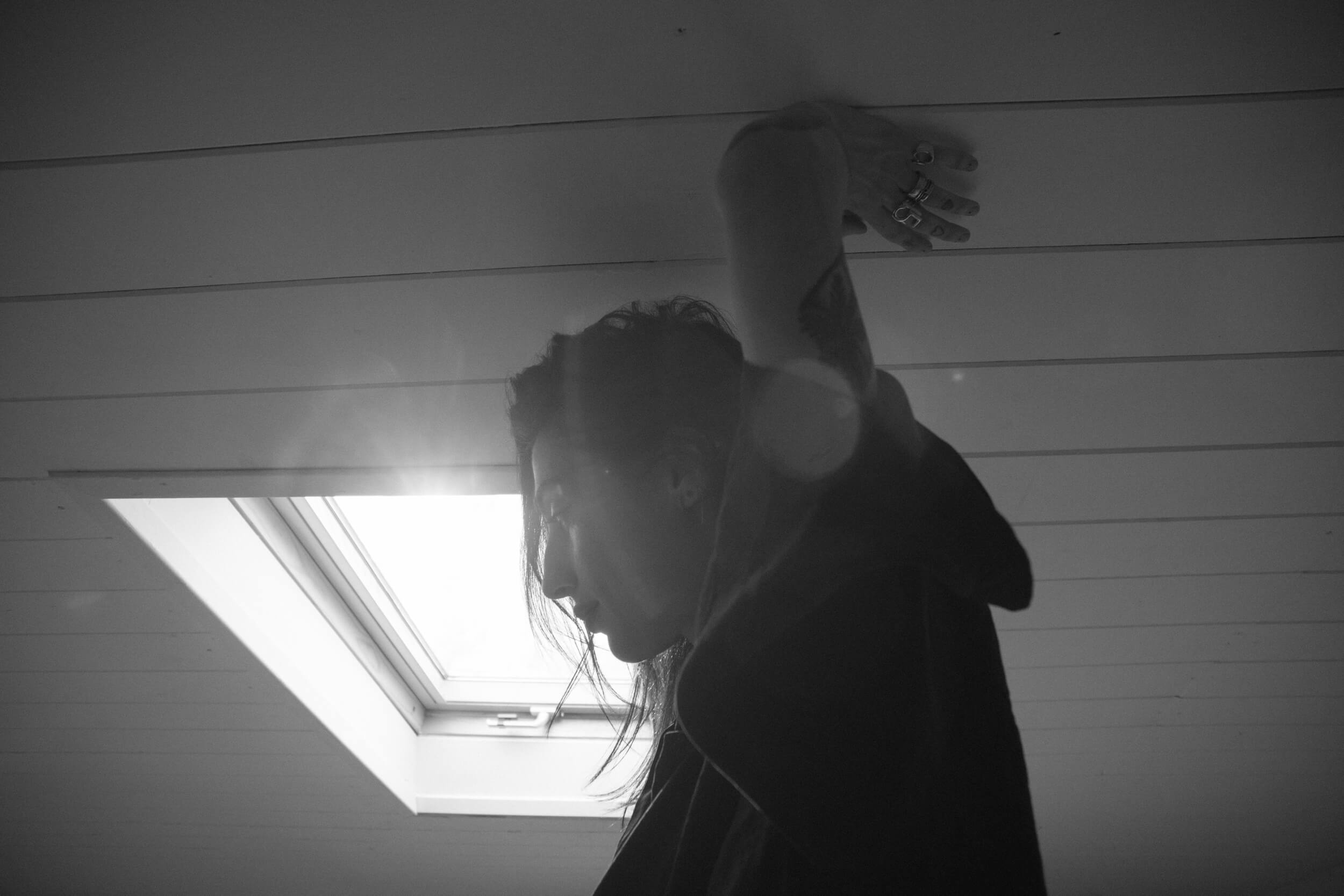
In all this, are there any books, or authors that you particularly like?
When it comes to authors who’ve written about feminism, a Pandora’s box opens up. There are so many of them, starting from Angela Davis with her “Women, Race and Class,” which is a fundamental piece of writing. Then, there’s a 1973 essay by Elena Giannini Belotti entitled “Dalla parte delle bambine” (on the little girls’ side), and it goes through the history of gender stereotypes starting from not the urban, but the rural centers, so all that series of superstitions about females that males believed in, also pregnancy-wise, when a woman was pregnant, they always wished it was a boy. It’s a book that opens up your eyes to how deeply gender stereotypes are rooted even when you don’t notice it and, if you think about it, gender stereotypes are the embryo of violence. I really love the work Vera Gheno is carrying out, she’s a linguist who’s dealing with the theme of inclusive language within society, and she wrote a very beautiful book called “Femminili singolari” (feminine singulars). There are lots of writings that I always recommend, but right now language, so the representation through language, and stereotypes are some of the themes I’m interested in.
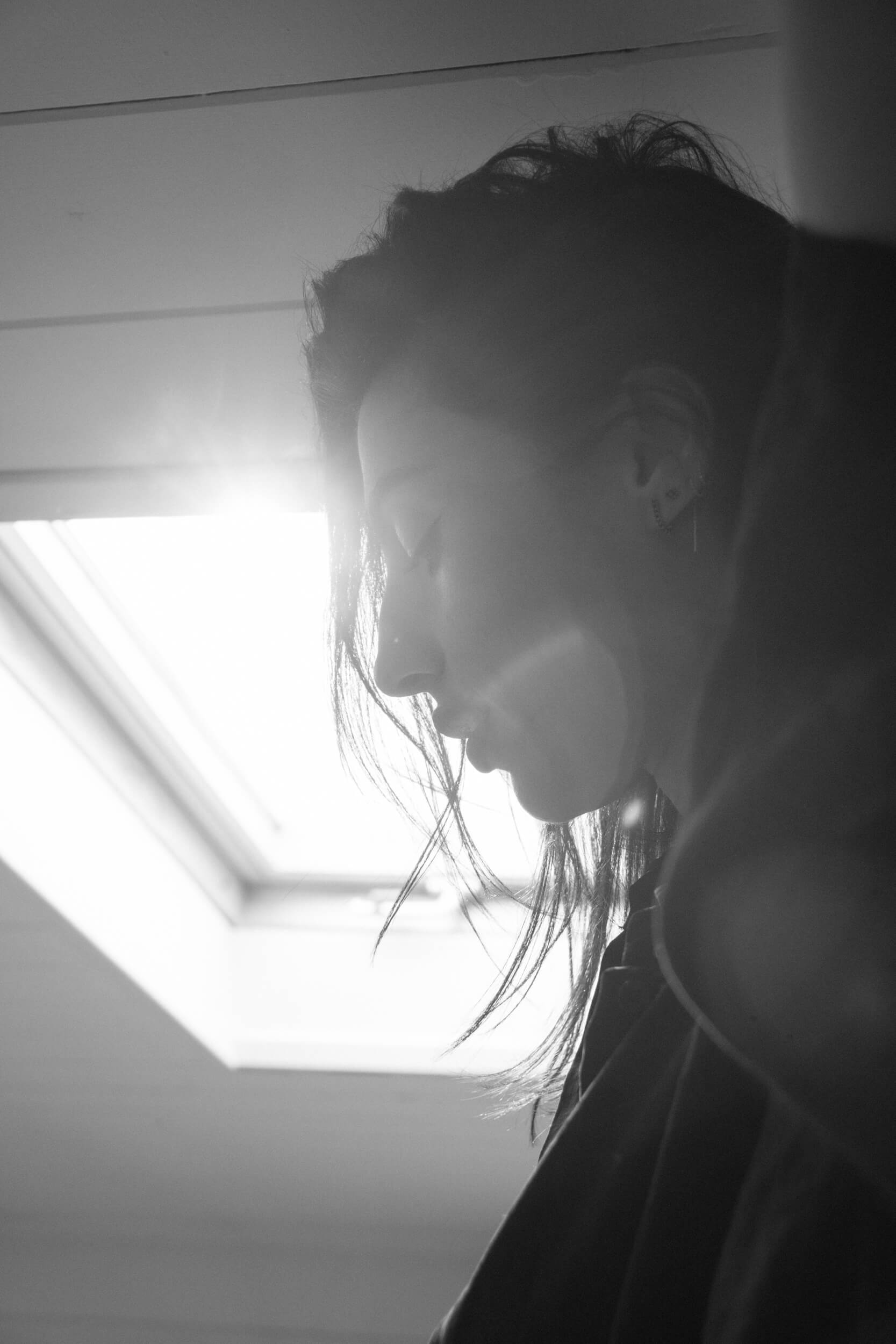
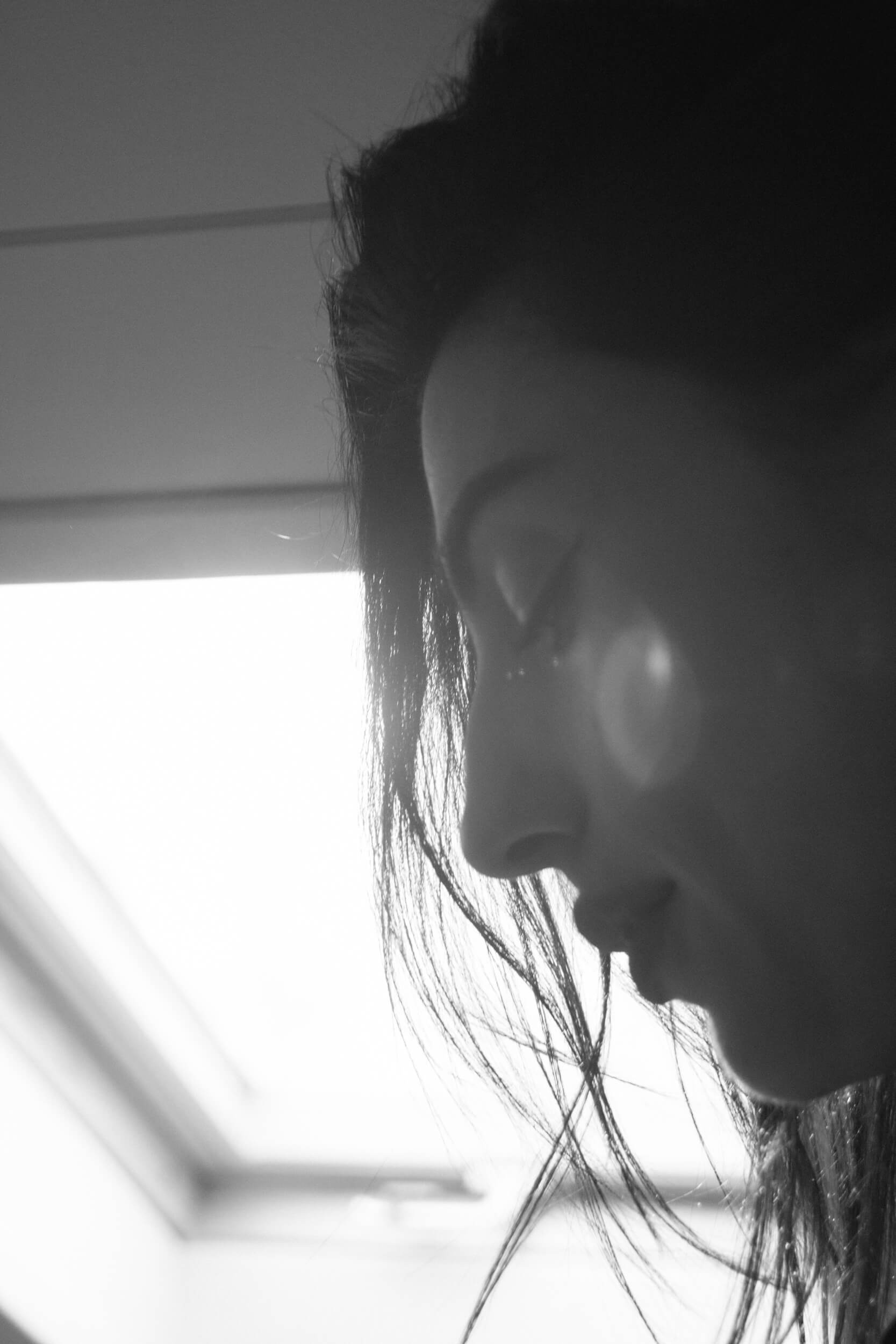
When we listen to you and follow you on social media, or when we read what you write, you seem like – and you are, I think – a very self-confident woman.
Reckless… I’d rather say reckless [laughs]. I’ve never had a real perception of myself, my confidence probably comes from the devil-may-care attitude that I’ve always had. There’s certainly something that really set me free, which is the fact that I faced vis-à-vis the fear of dying, of being murdered. It unfreezes you, there’s no next level, you’ve defeated the final monster. You realize that and live without that load, you know exactly what that kind of fear will be like, you know exactly what can happen to you and how. If I’m not scared, it’s because I know exactly what it feels like to be so scared to die you wet yourself, I won’t certainly be afraid of some Internet people’s opinion, that’s for sure. To be confident is something else. I’m never confident about my abilities, I guess, I’m never fully confident about that, I always question myself so that I can go on. I like to question myself also by comparing myself with other people, with other ideas, I think that dialogue is vital and necessary. As for recklessness, instead, I claim it.
What’s the latest bullshit you’ve heard?
[laughs] The latest bullshit I’ve heard is probably the director of Rai 1 saying that he really cares about the issue of violence against women and that he wants to create an environment of narrations that respect violence against women and inspire women to report abuses, and then, in two weeks’ time, he releases three episodes from three shows produced by RAI, featuring false accusations of rape. That’s not nice, that’s some huge bullshit, and 9 out of 10 viewers didn’t even notice that. It’s public service, it’s not Mediaset, where a “combination of” is somehow acceptable; public service should pay attention to this kind of thing.
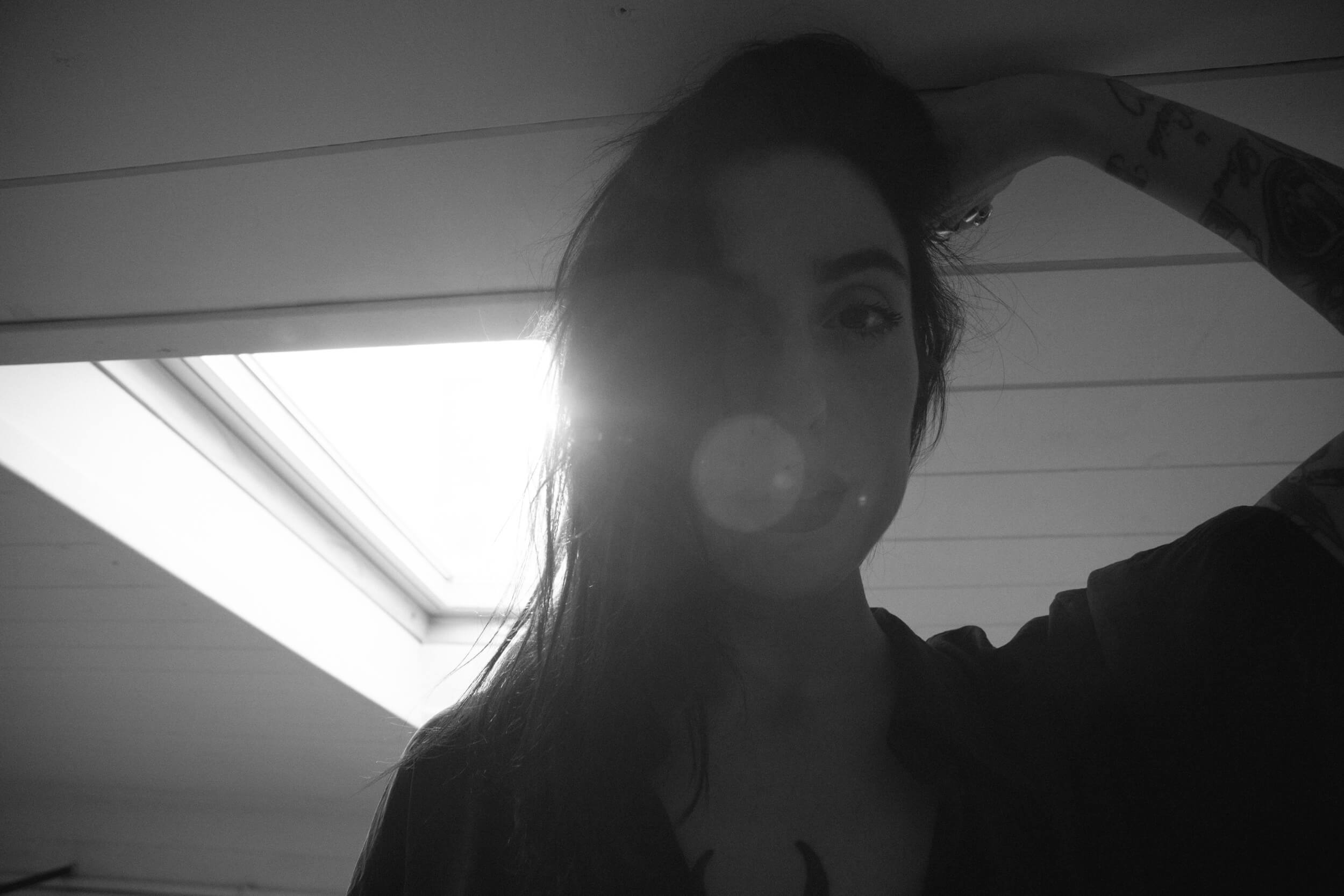
“As for recklessness, instead, I claim it.”
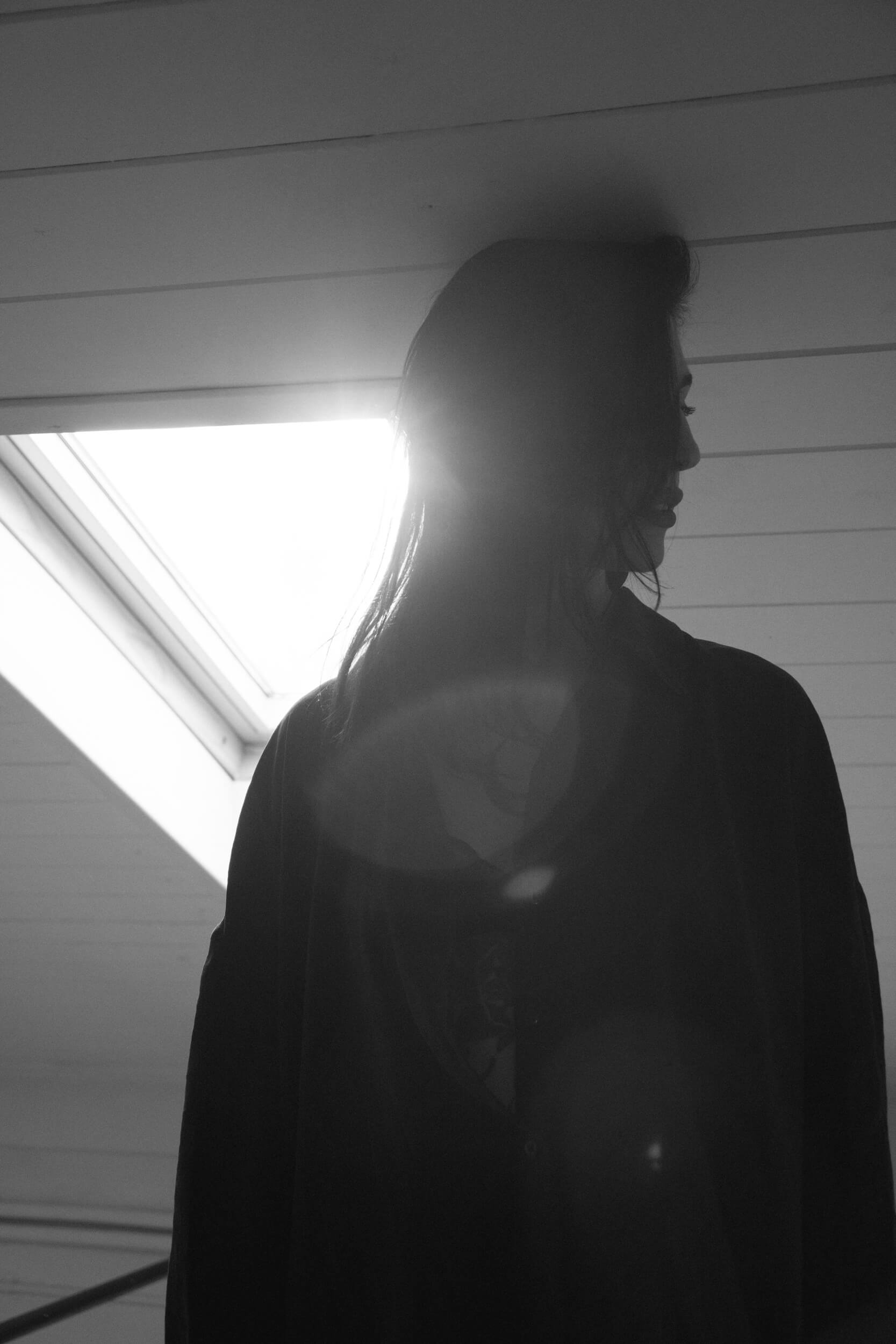
You write on GQ, you’ve also written for Playboy, and you often speak not only about your body but also about sex with absolute openness, as we were saying before. For you, for Carlotta, what is sensuality?
Sensuality is a subjective personality trait which some people might not even need, or don’t have “installed” within them, as I always say. Sensuality is subjective, to me eating spaghetti in a certain way might be sensual, to some other people walking barefoot might be sensual. It’s like erotism, things are erotic because they trigger something that we don’t have on an objective level, but that we have on an internal level. It’s the same thing, something can be sensual, or beautiful to me even when it’s not canonically considered so, there’s no objectivity in this field, it’s always very private and personal. In fact, it’s wonderful when two people with the same vision of sensuality cross paths; when I find that, I remain still in contemplation, and that’s the chemistry everyone talks about, it’s vibrating on the same sensuality frequency.
Sensuality is, for me, Carlotta, a vital expression that comes around in unexpected ways: to me, sensual things could be some dialogue with a person, some play of hands, the way a person smokes, to be approached in a certain way. The variations are subjective, though, and that’s the reason why I like it, it’s always an act of exploration to understand what other people find sensual.
Photos and Video by Johnny Carrano.
Follow here Carlotta Vagnoli.

